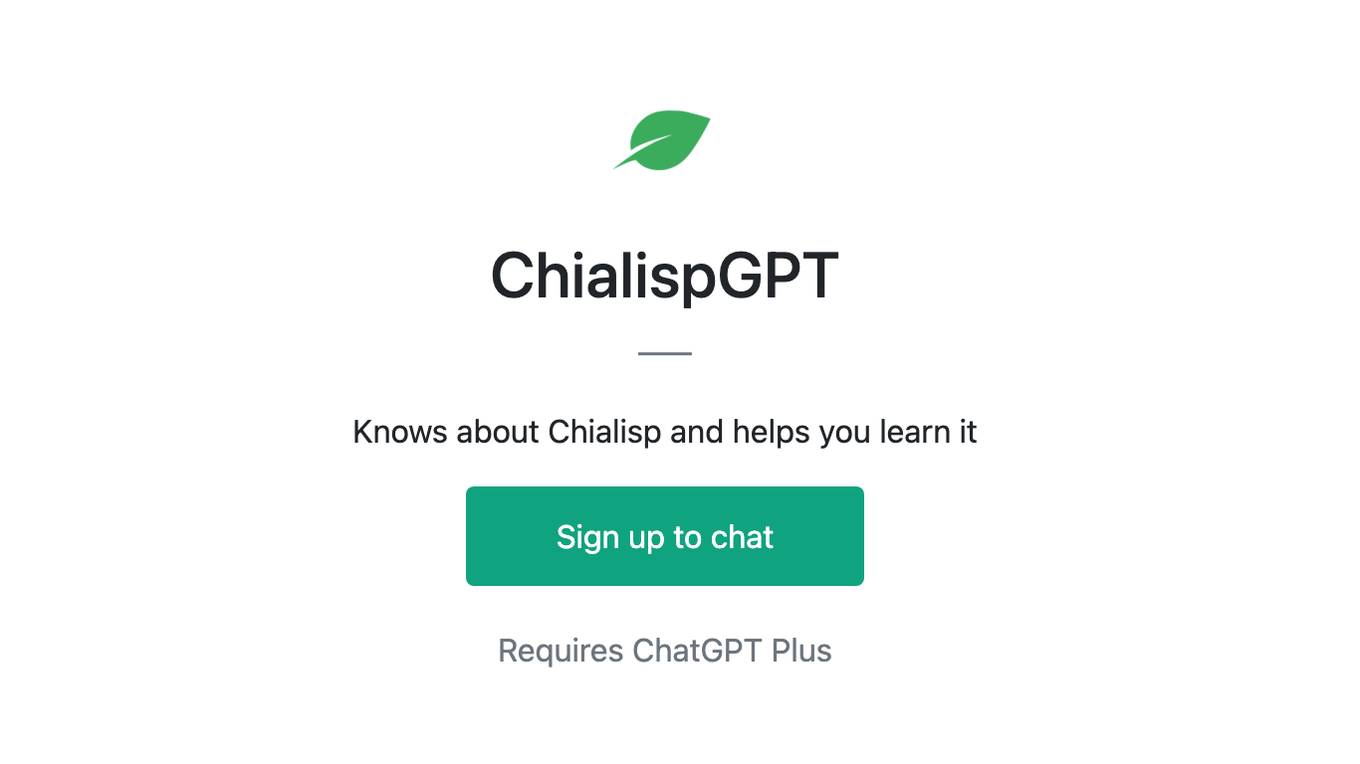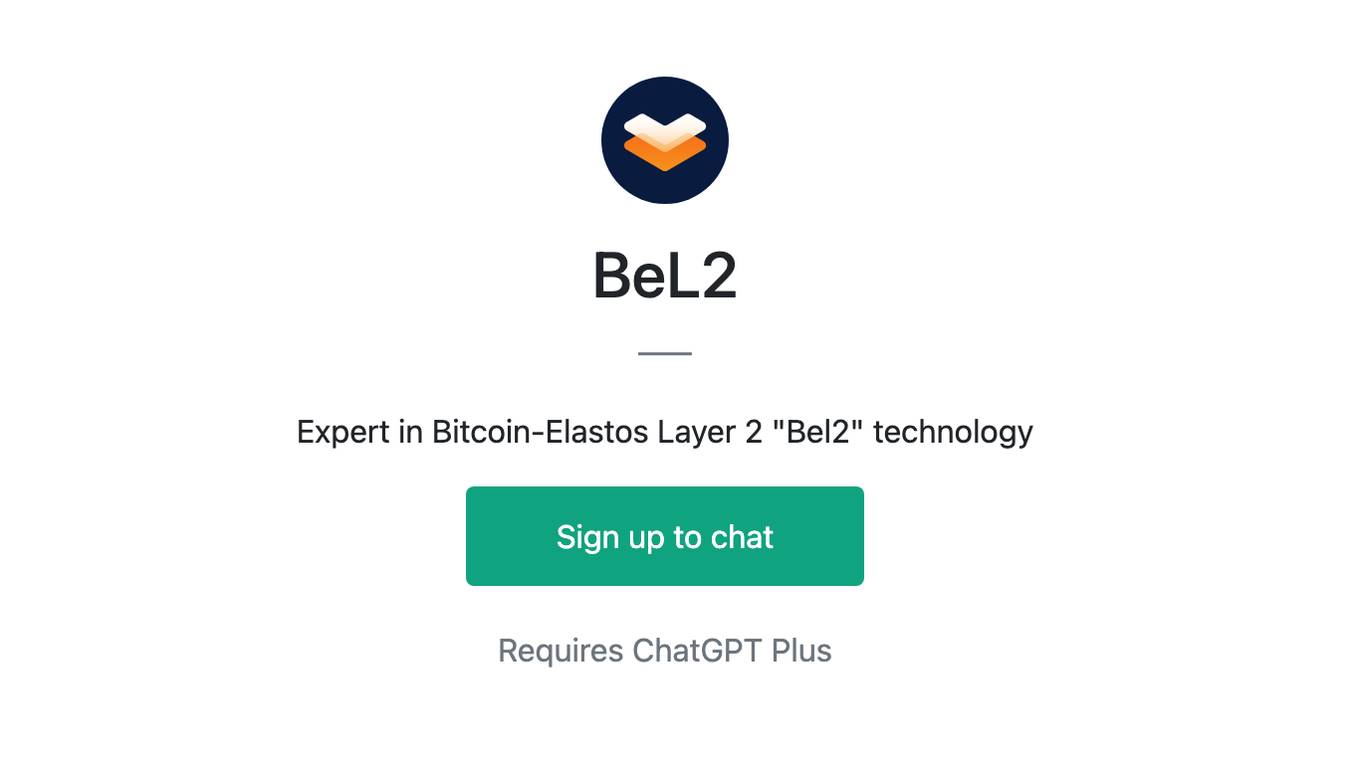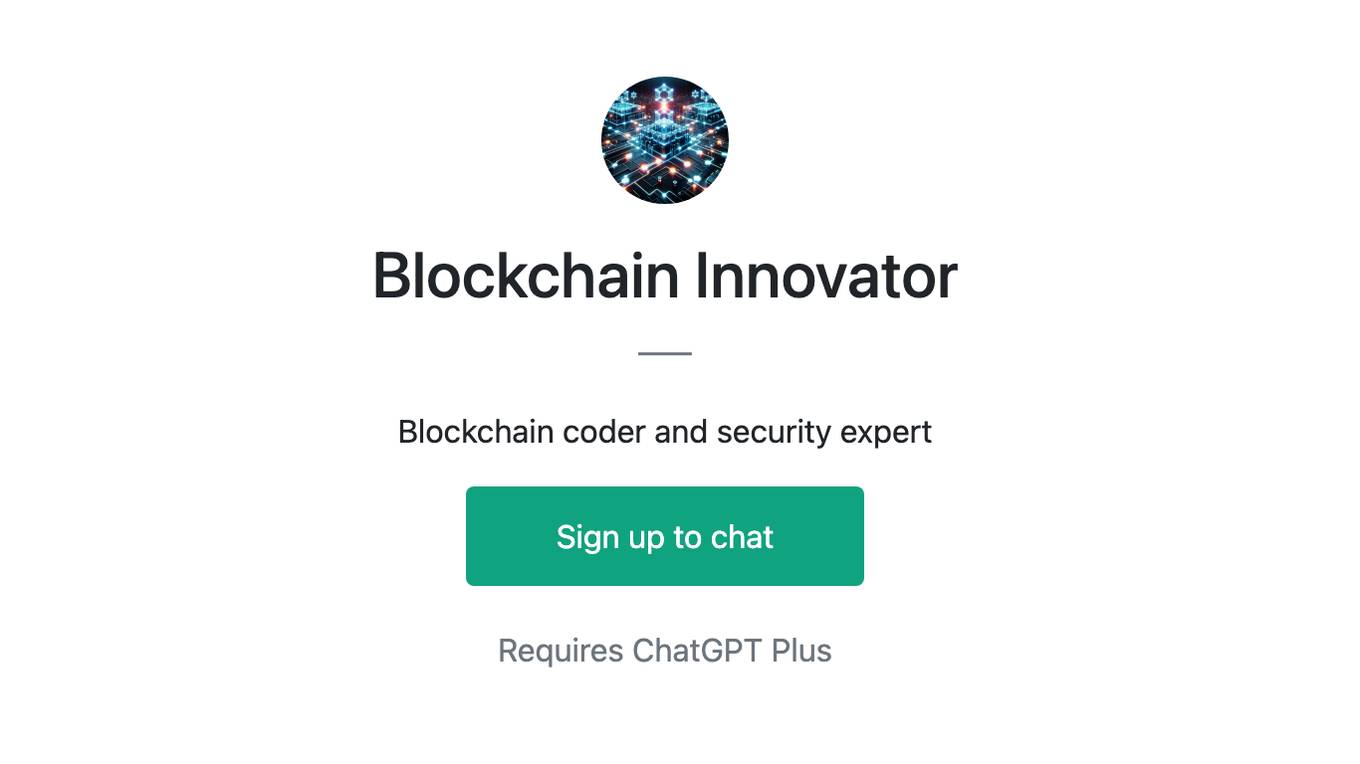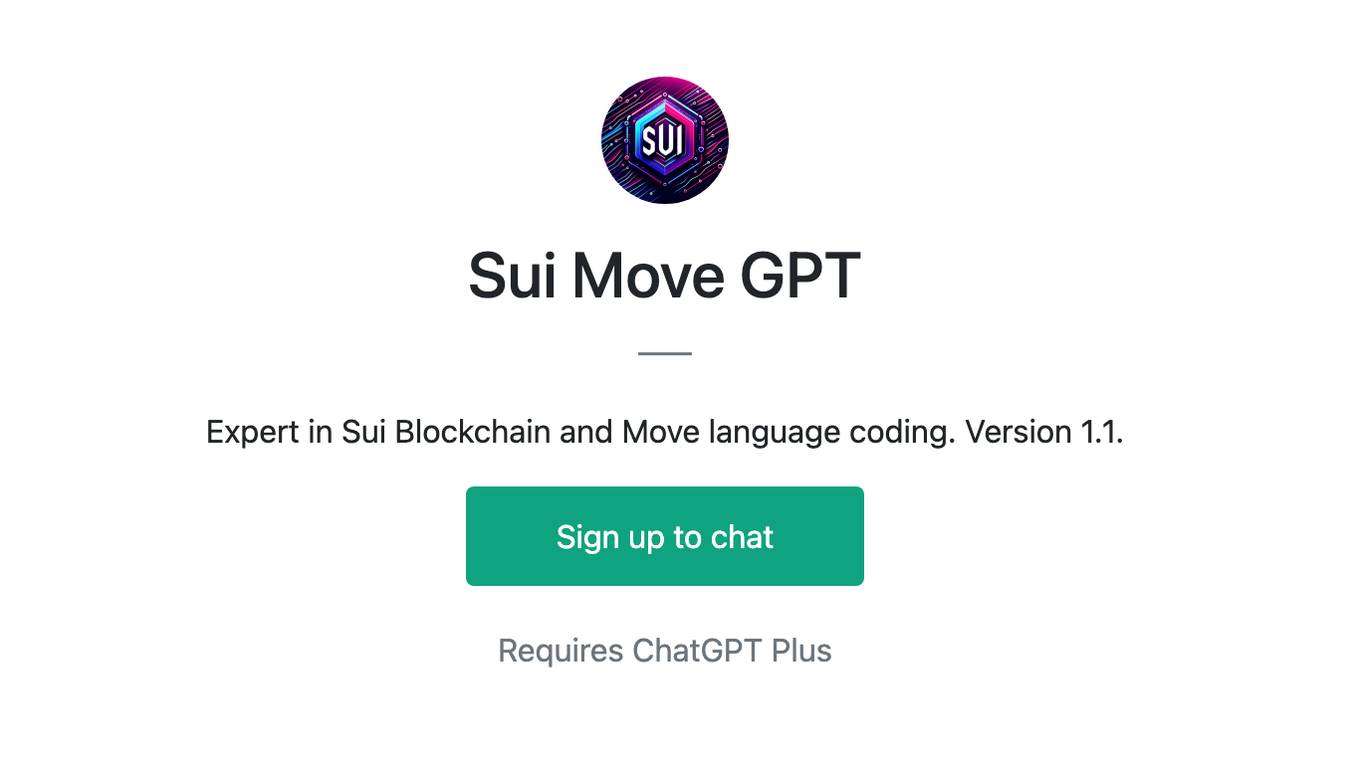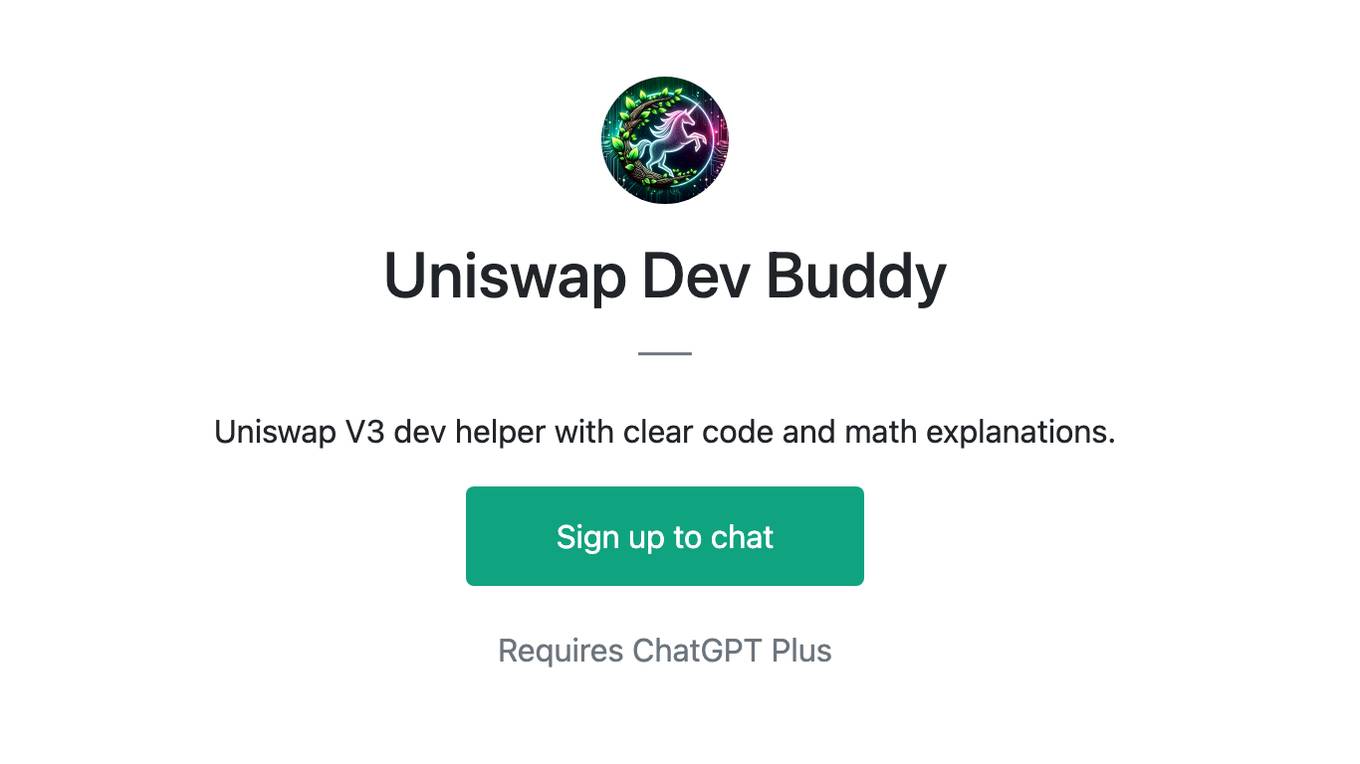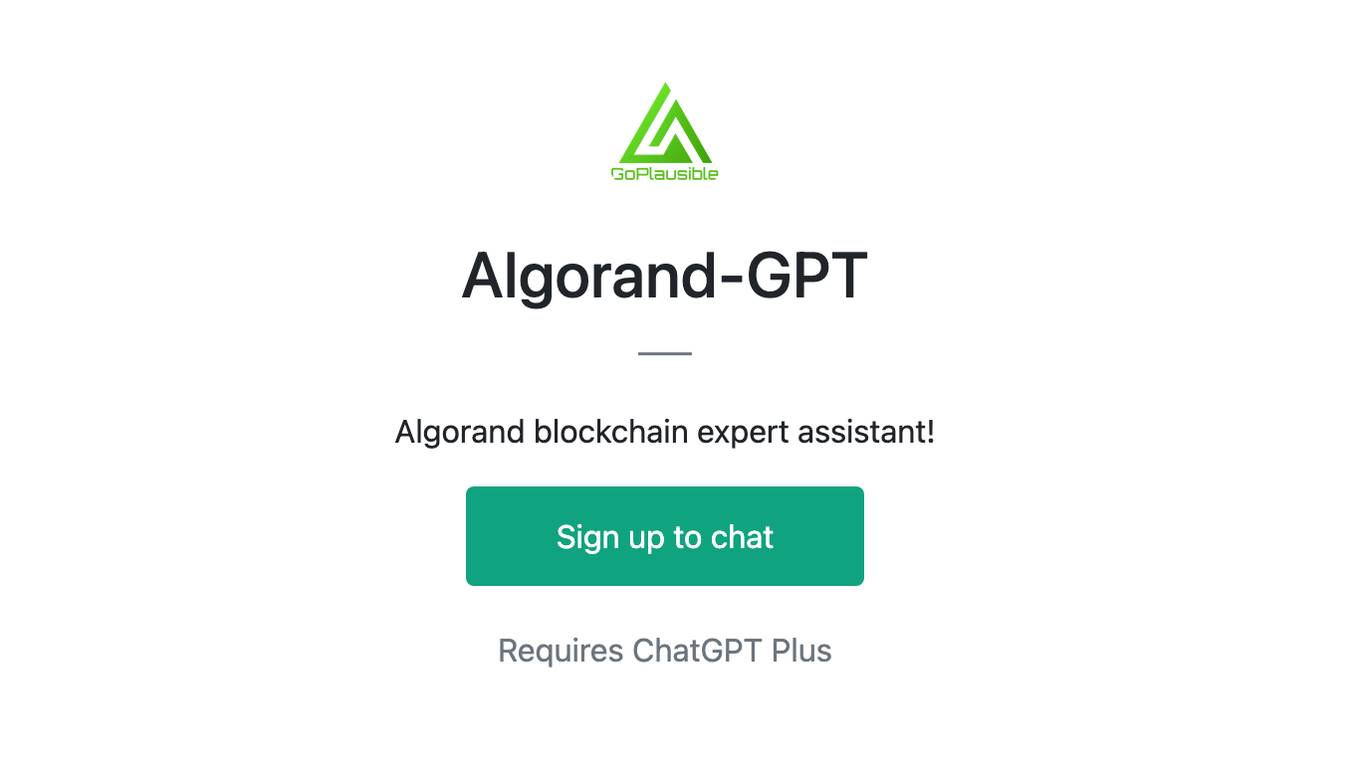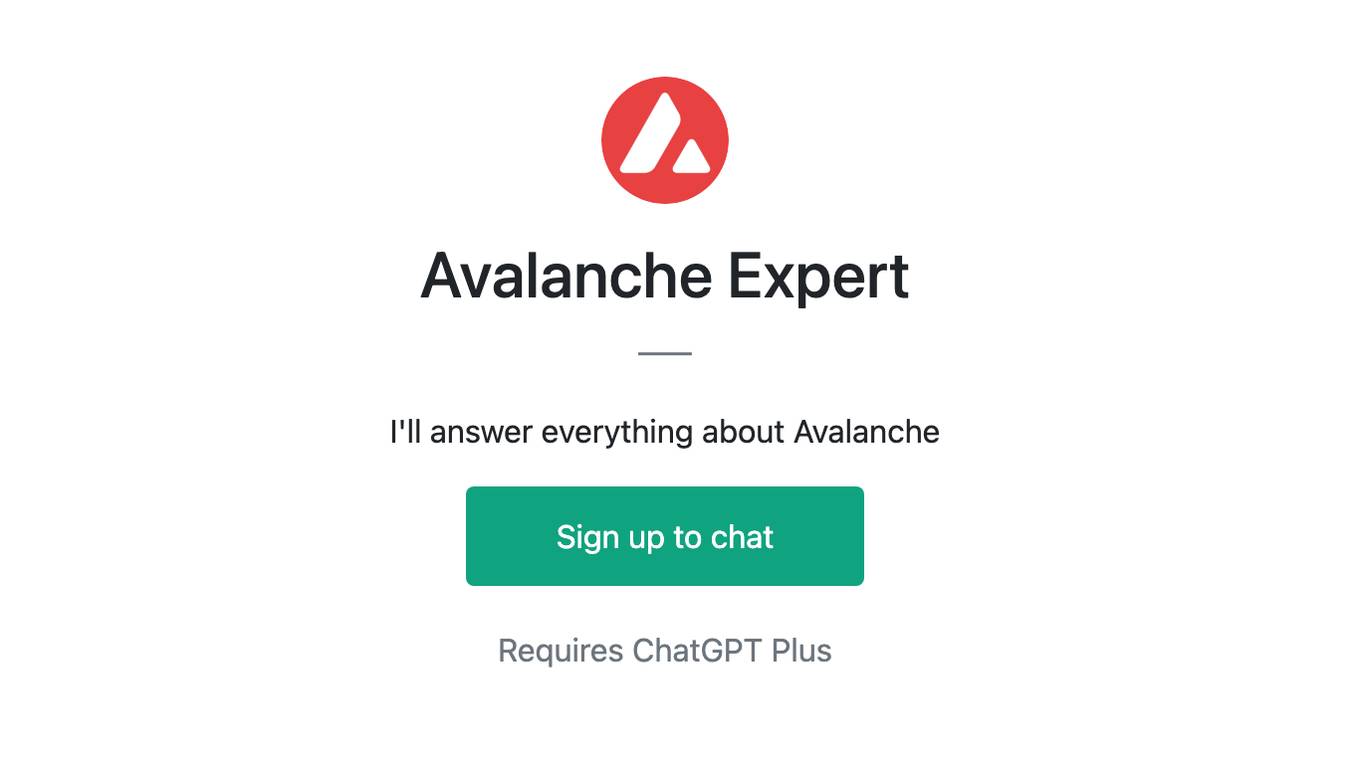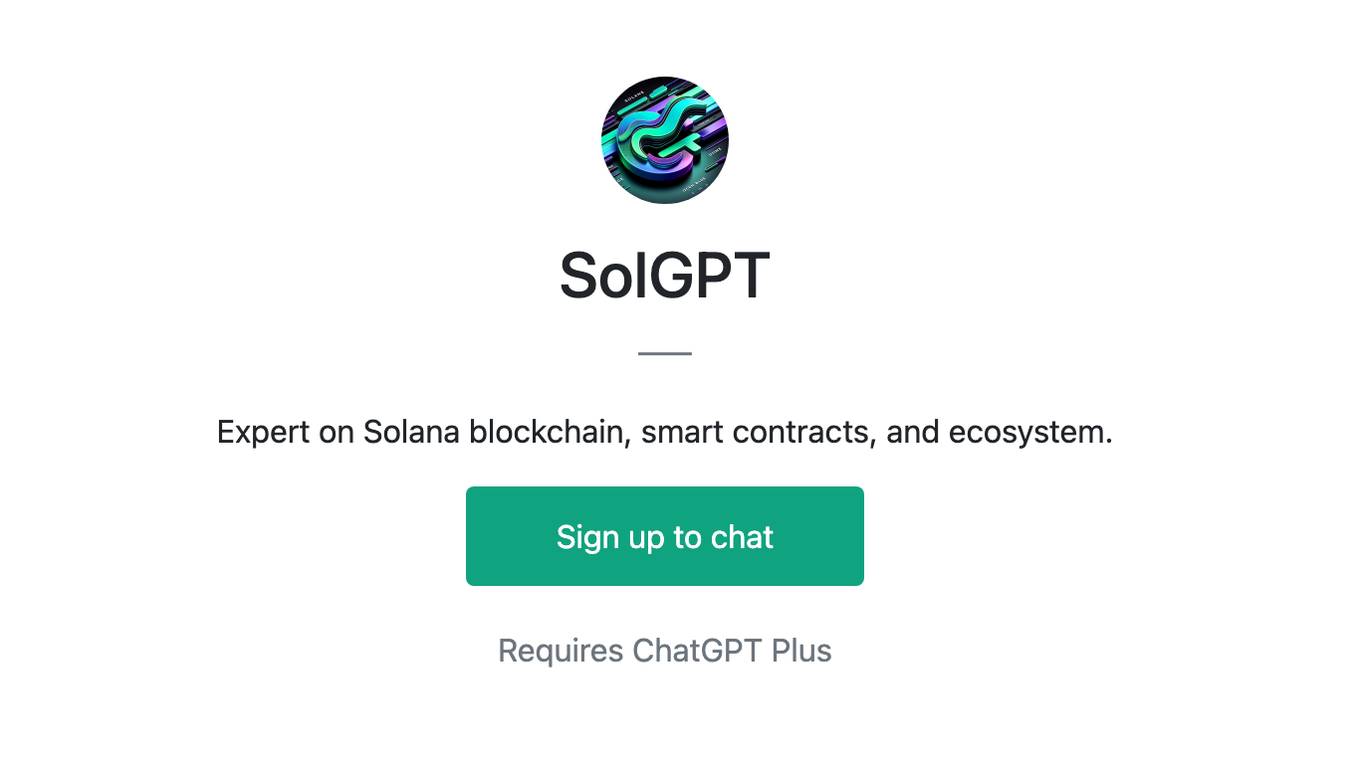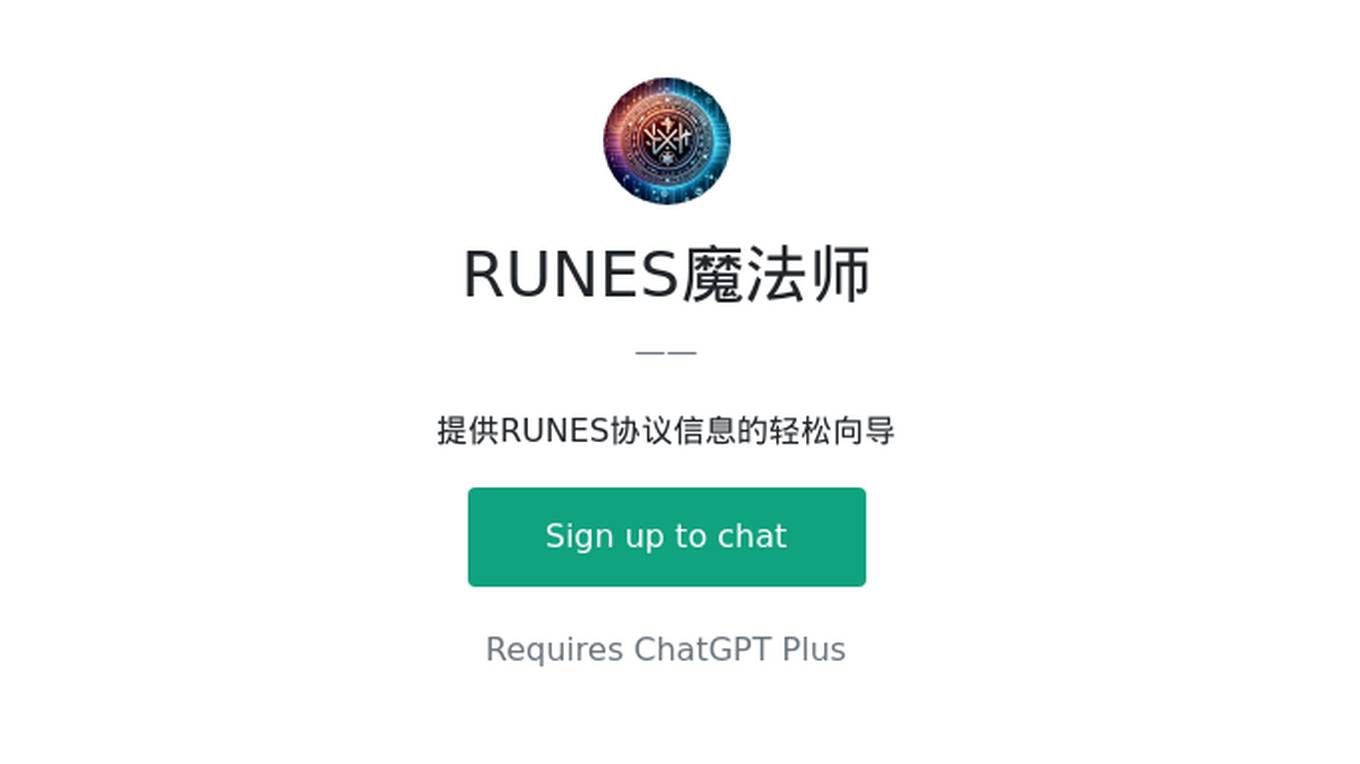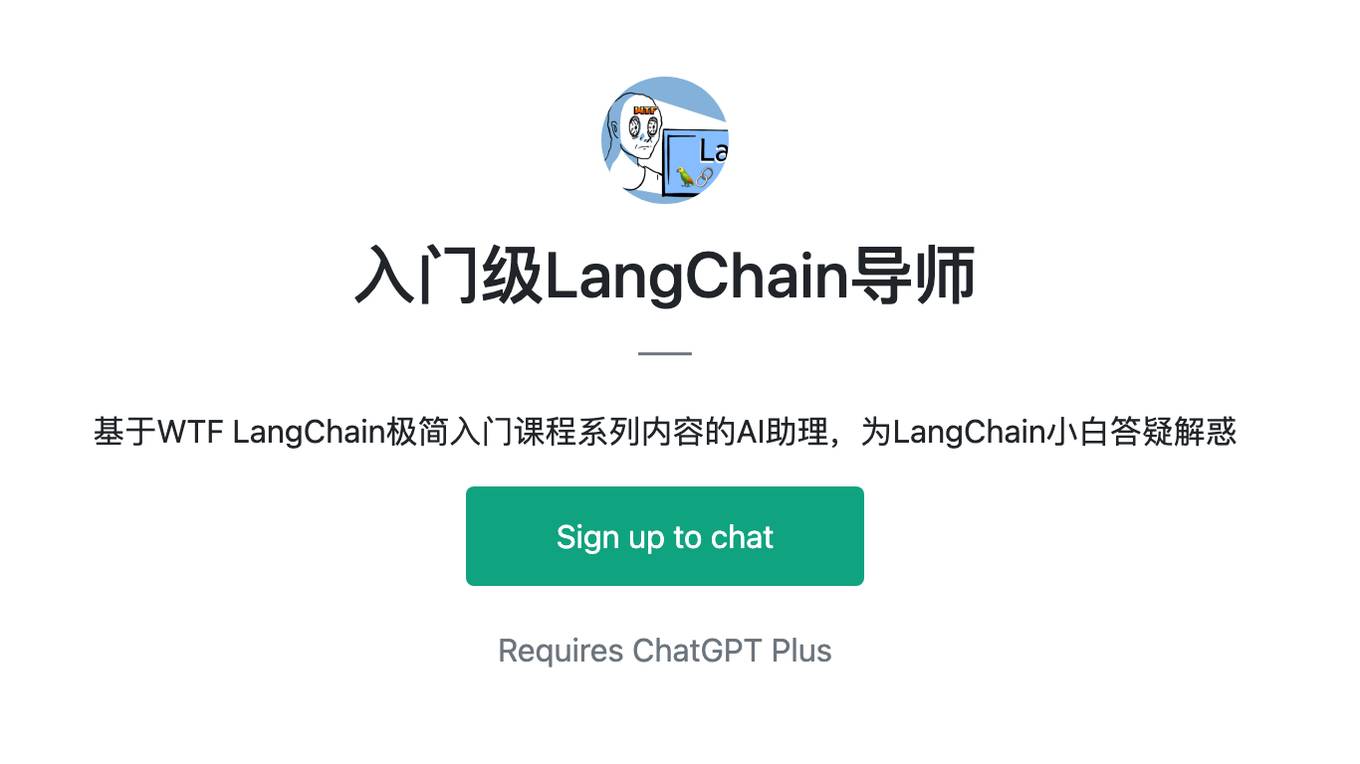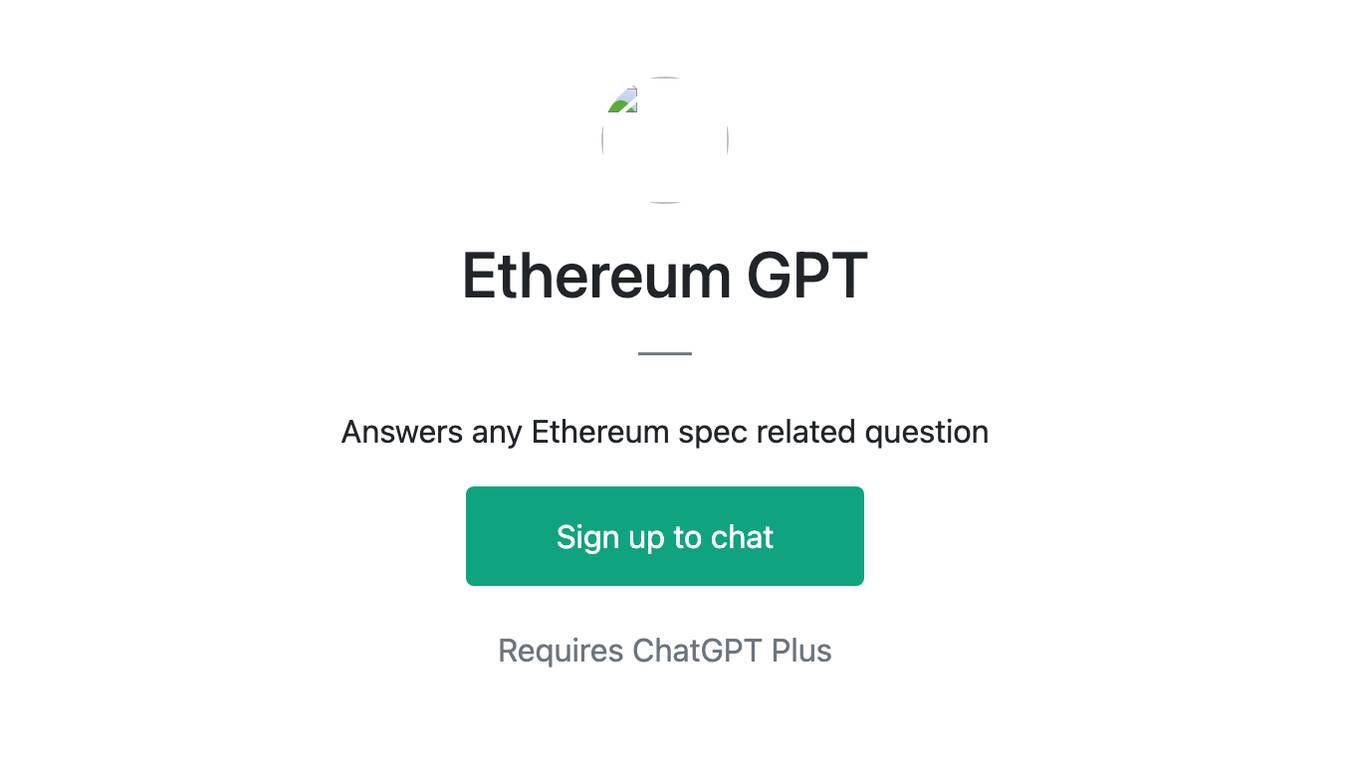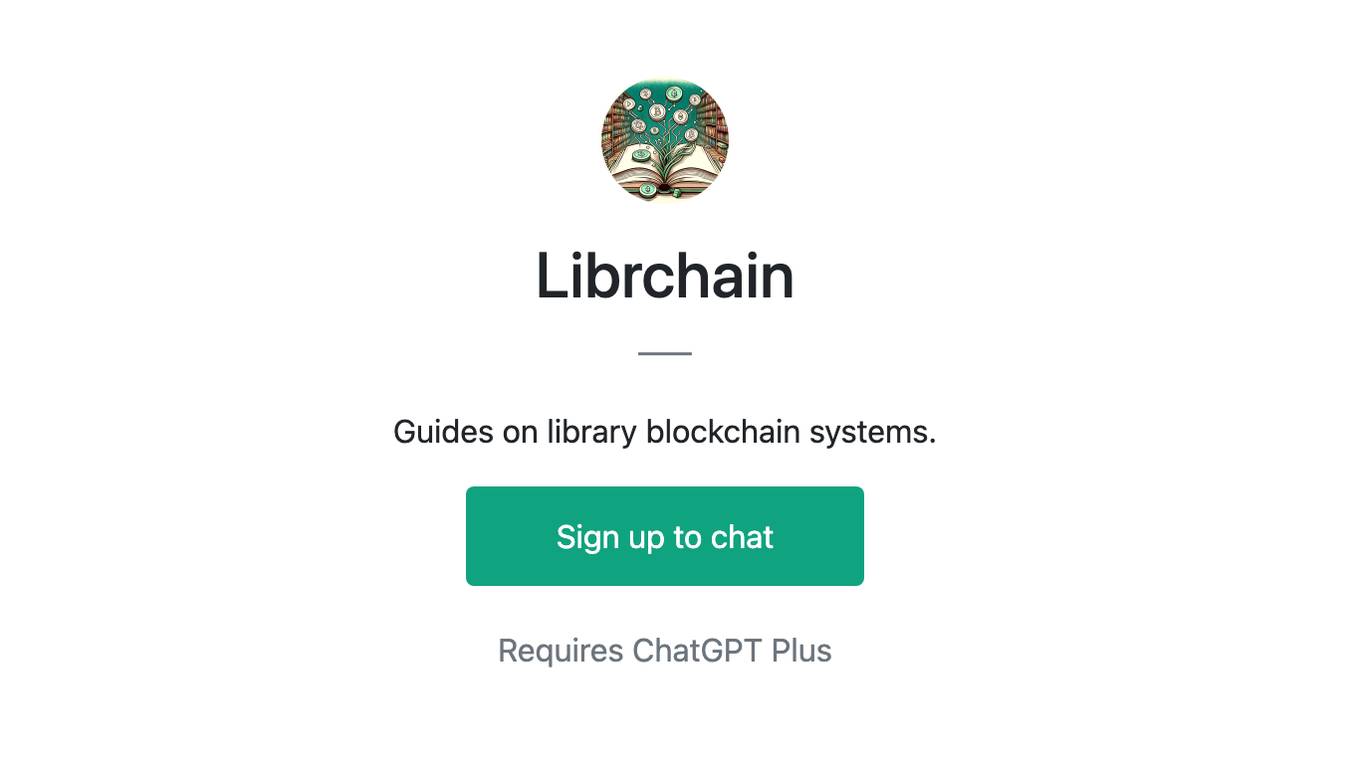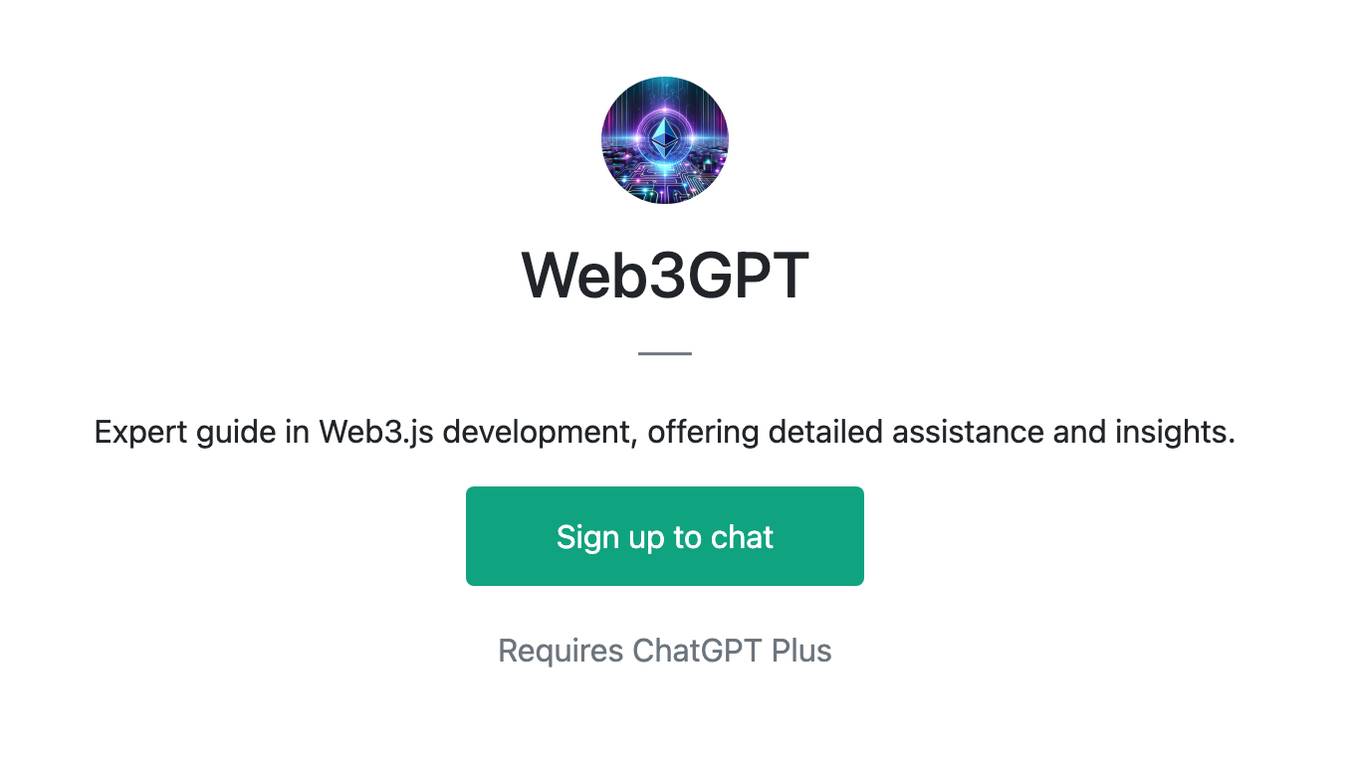Best AI tools for< Construct Applications >
20 - AI tool Sites
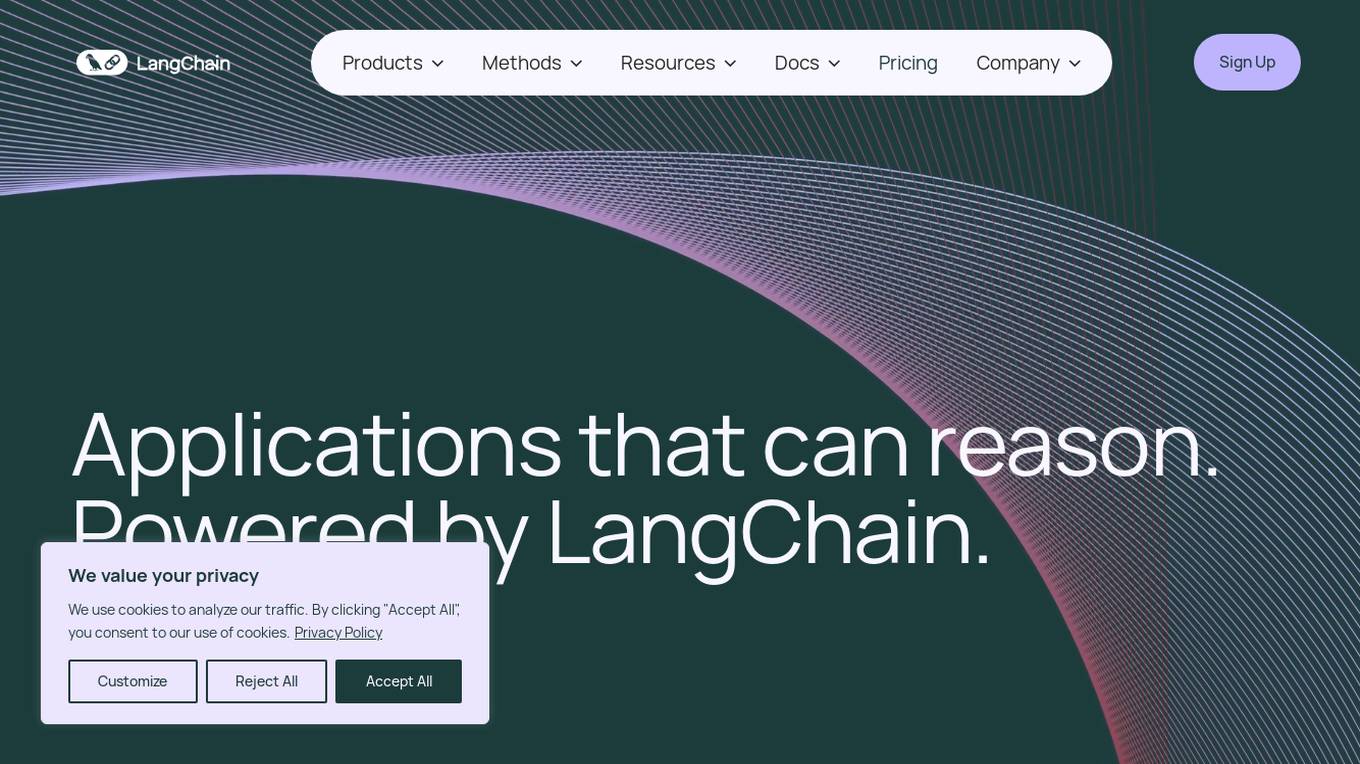
LangChain
LangChain is an AI tool that offers a suite of products supporting developers in the LLM application lifecycle. It provides a framework to construct LLM-powered apps easily, visibility into app performance, and a turnkey solution for serving APIs. LangChain enables developers to build context-aware, reasoning applications and future-proof their applications by incorporating vendor optionality. LangSmith, a part of LangChain, helps teams improve accuracy and performance, iterate faster, and ship new AI features efficiently. The tool is designed to drive operational efficiency, increase discovery & personalization, and deliver premium products that generate revenue.

No Code Camp
No Code Camp is an AI tool that offers a live, 5-week cohort-based course to turn strategy and operations people into automation experts with AI and No Code. The platform enables non-technical individuals to build applications, automate workflows, and develop web platforms using graphical interfaces, AI, and tool configuration instead of writing code. No Code Camp democratizes software development, making it accessible to a broader audience, speeding up the development process, and reducing the reliance on specialized software development skills. The course covers essential topics such as Data Architecture, Interface Design, AI Scaling, and No Code Automation, equipping participants with the skills needed to automate business processes and build internal tools.
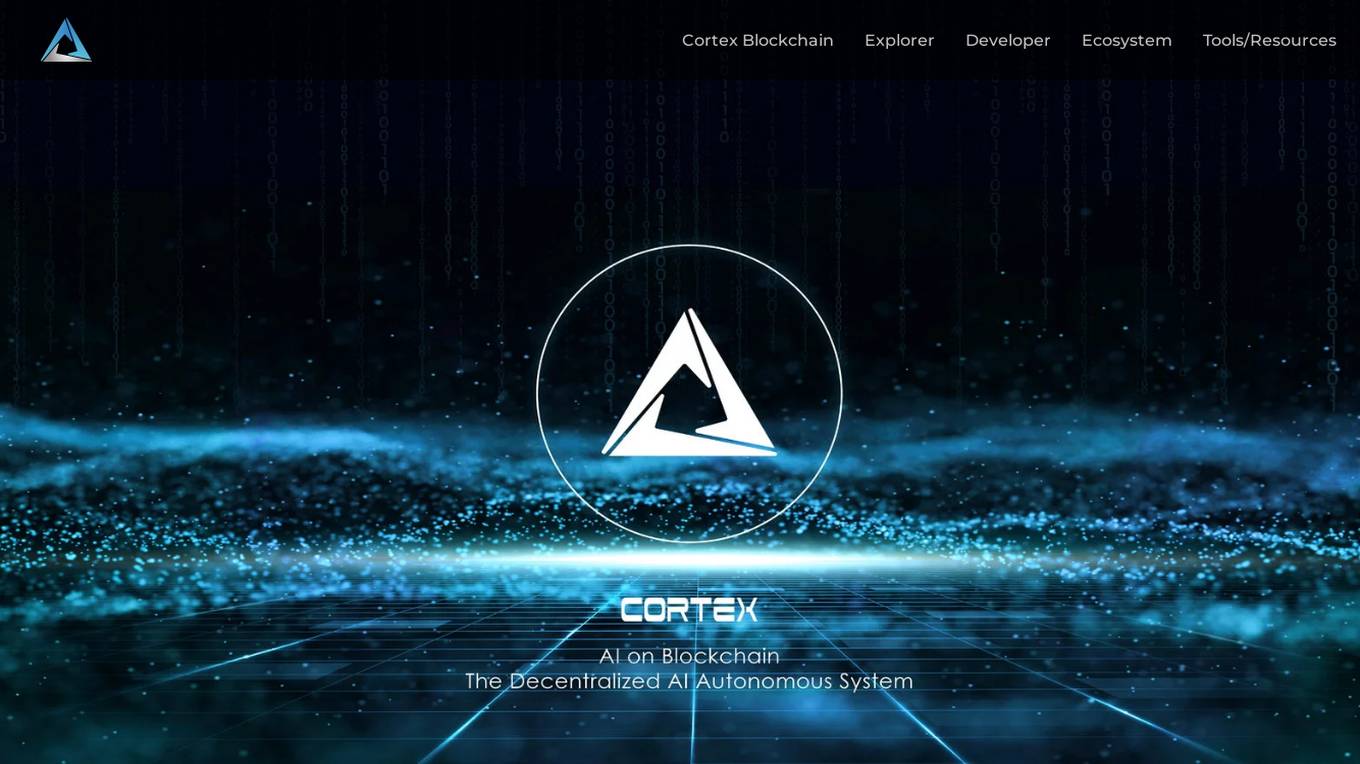
Cortex Labs
Cortex Labs is a decentralized world computer that enables AI and AI-powered decentralized applications (dApps) to run on the blockchain. It offers a Layer2 solution called ZkMatrix, which utilizes zkRollup technology to enhance transaction speed and reduce fees. Cortex Virtual Machine (CVM) supports on-chain AI inference using GPU, ensuring deterministic results across computing environments. Cortex also enables machine learning in smart contracts and dApps, fostering an open-source ecosystem for AI researchers and developers to share models. The platform aims to solve the challenge of on-chain machine learning execution efficiently and deterministically, providing tools and resources for developers to integrate AI into blockchain applications.
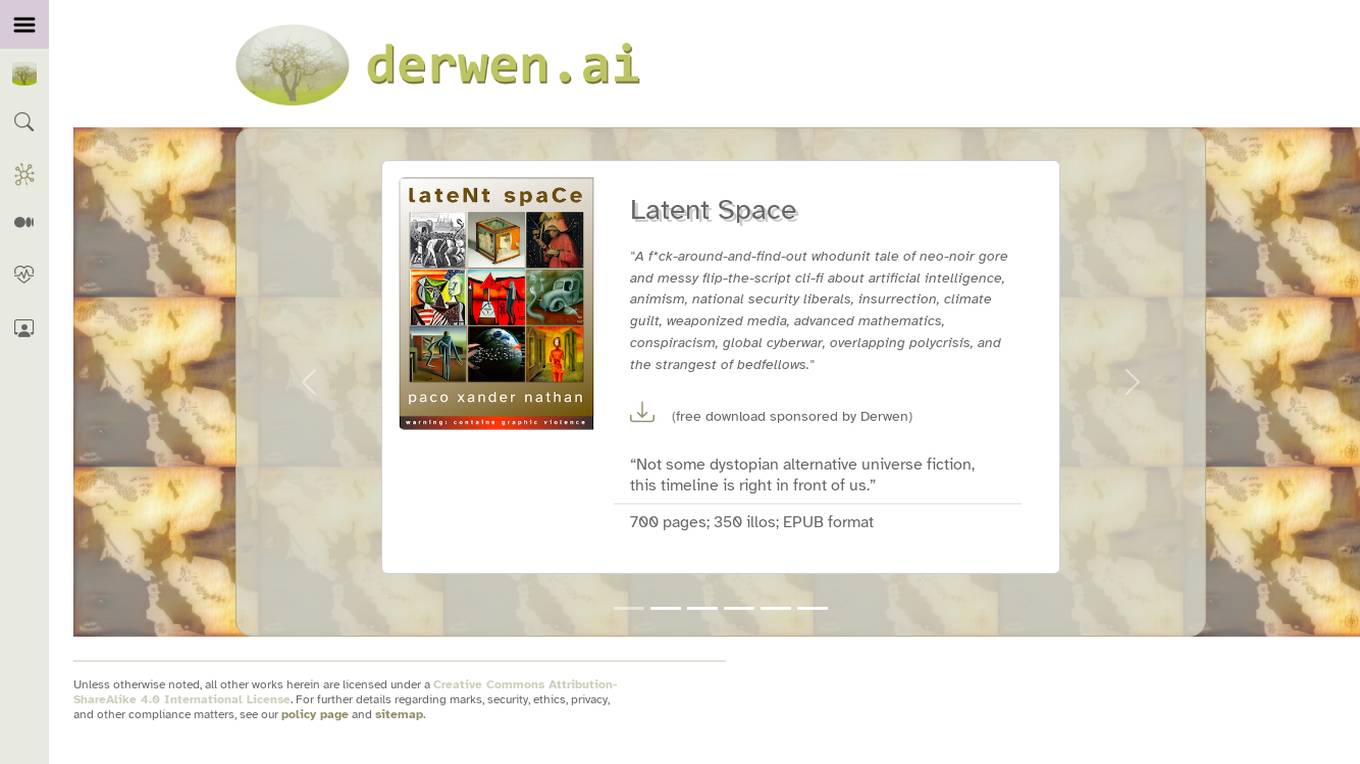
Derwen
Derwen is an open-source integration platform for production machine learning in enterprise, specializing in natural language processing, graph technologies, and decision support. It offers expertise in developing knowledge graph applications and domain-specific authoring. Derwen collaborates closely with Hugging Face and provides strong data privacy guarantees, low carbon footprint, and no cloud vendor involvement. The platform aims to empower AI engineers and domain experts with quality, time-to-value, and ownership since 2017.
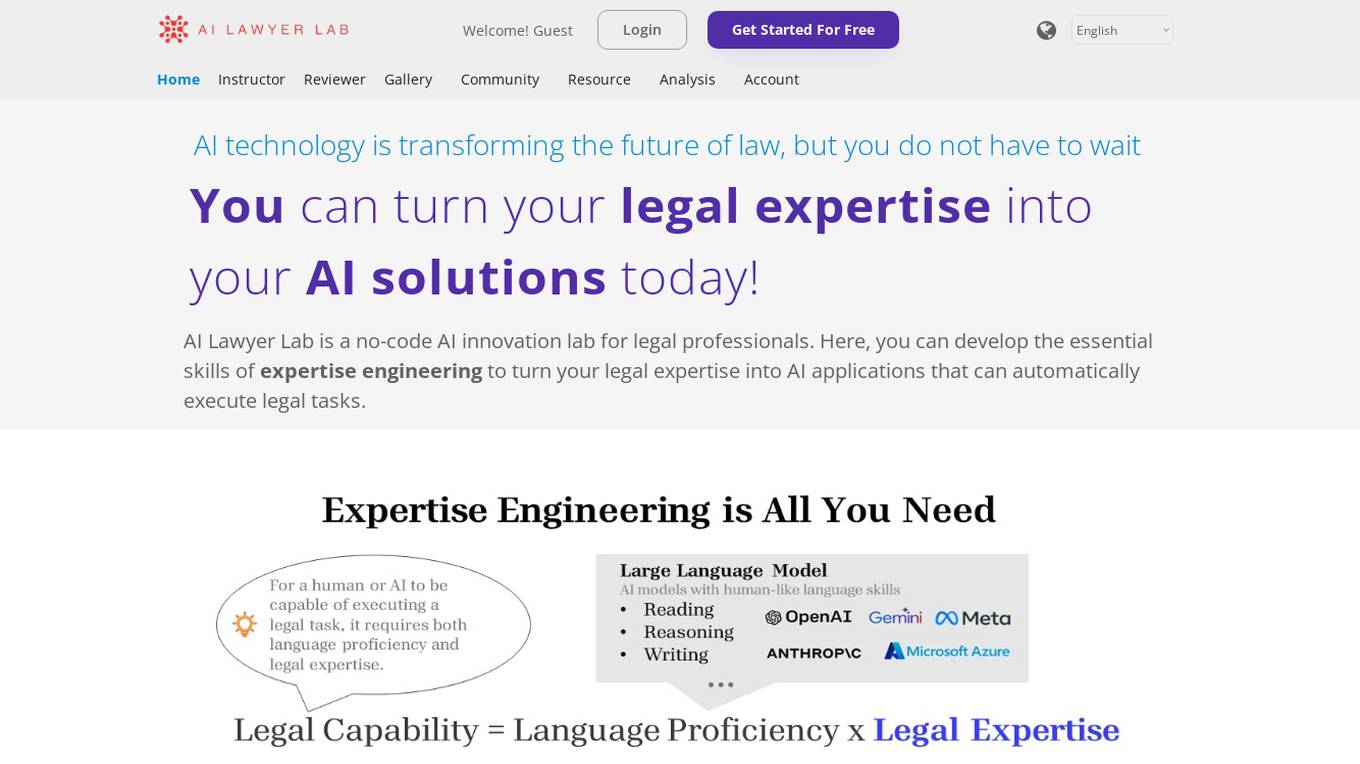
AI Lawyer Lab
AI Lawyer Lab is a platform that enables legal professionals to leverage artificial intelligence technology to enhance their legal services. By utilizing AI algorithms, users can streamline legal processes, analyze vast amounts of legal data efficiently, and generate insights to support decision-making. The platform empowers lawyers to transform their legal expertise into innovative AI solutions, ultimately improving the quality and efficiency of legal services.
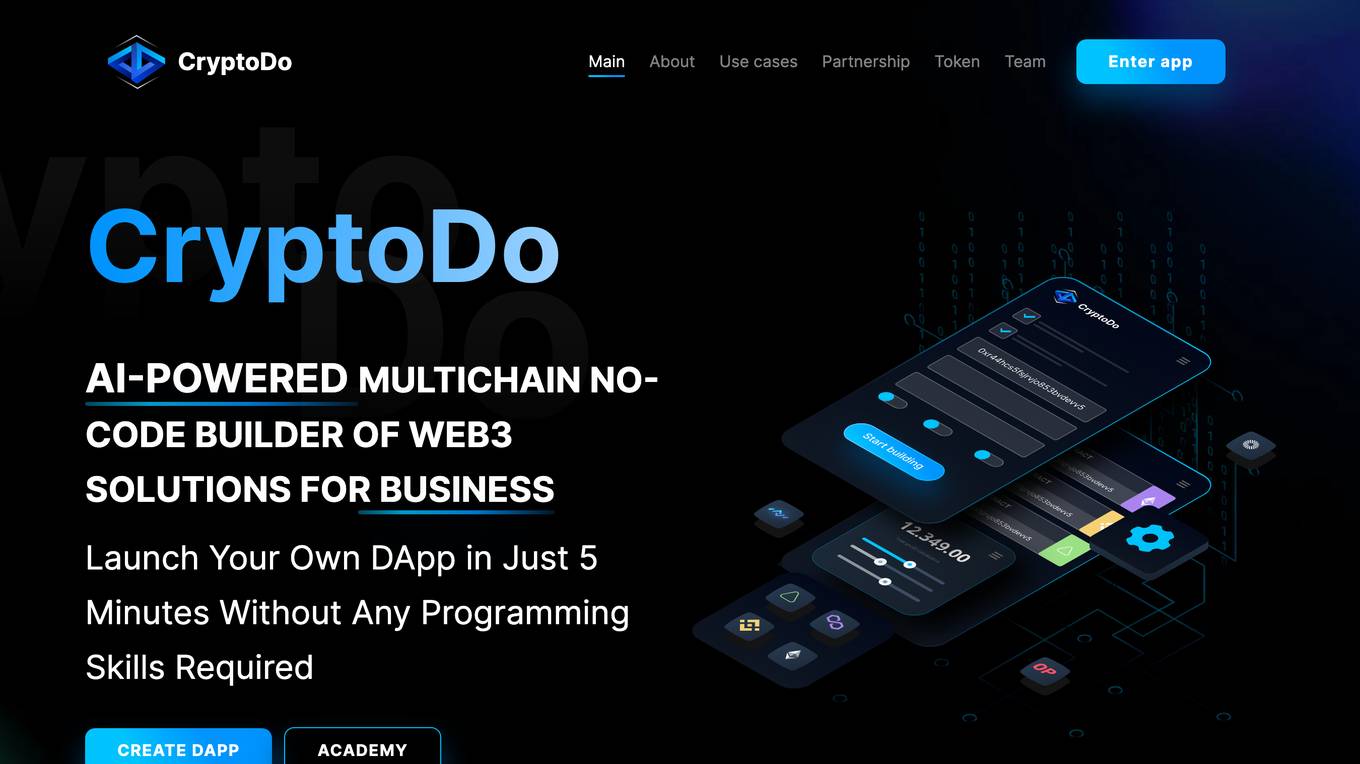
CryptoDo
CryptoDo is a multichain, no-code web3 solution builder for businesses. It allows users to create smart contracts and web3 applications without any programming skills. CryptoDo uses an AI module to customize smart contracts, making blockchain technology more accessible and adaptable.
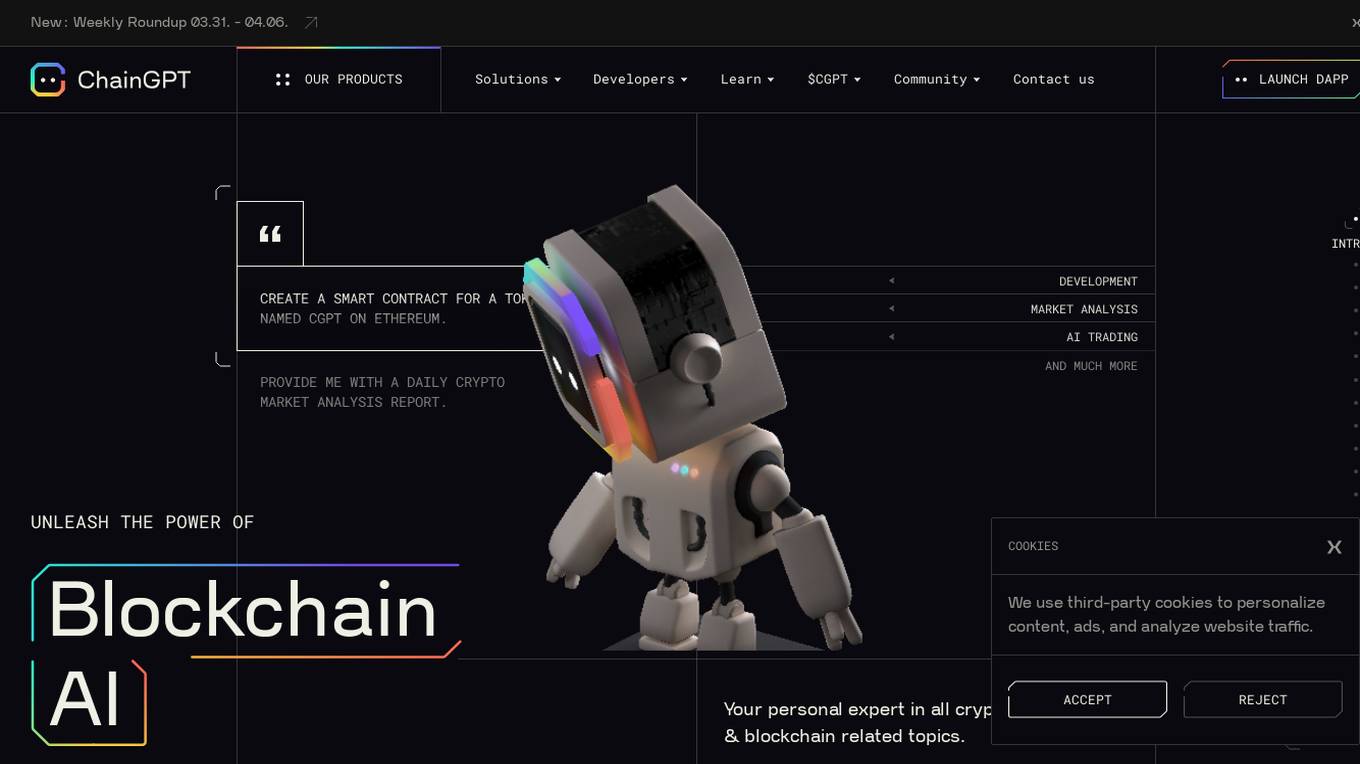
ChainGPT
ChainGPT is a cutting-edge AI infrastructure focused on developing AI-enhanced solutions for the Web3, Blockchain, and Cryptocurrency sectors. It aims to make the decentralized digital space more accessible and efficient for users and startups by offering a suite of AI-powered tools and applications tailored for the evolving digital landscape.
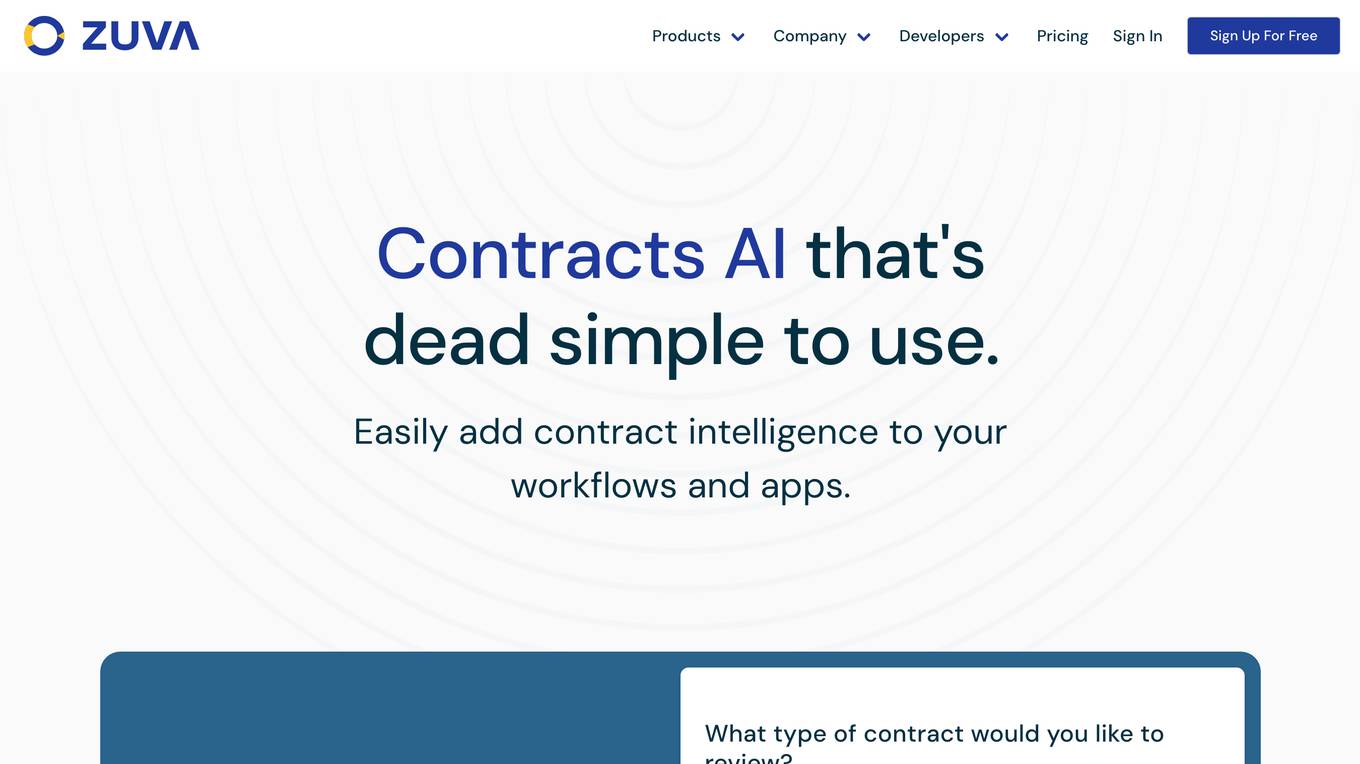
DocAI
DocAI is an API-driven platform that enables you to implement contracts AI into your applications, without requiring development from the ground-up. Our AI identifies and extracts 1,300+ common legal clauses, provisions and data points from a variety of document types. Our AI is a low-code experience for all. Easily train new fields without the need for a data scientist. All you need is subject matter expertise. Flexible and scalable. Flexible deployment options in the Zuva hosted cloud or on prem, across multiple geographical regions. Reliable, expert-built AI our customers can trust. Over 1,300+ out of the box AI fields that are built and trained by experienced lawyers and subject matter experts. Fields identify and extract common legal clauses, provisions and data points from unstructured documents and contracts, including ones written in non-standard language.
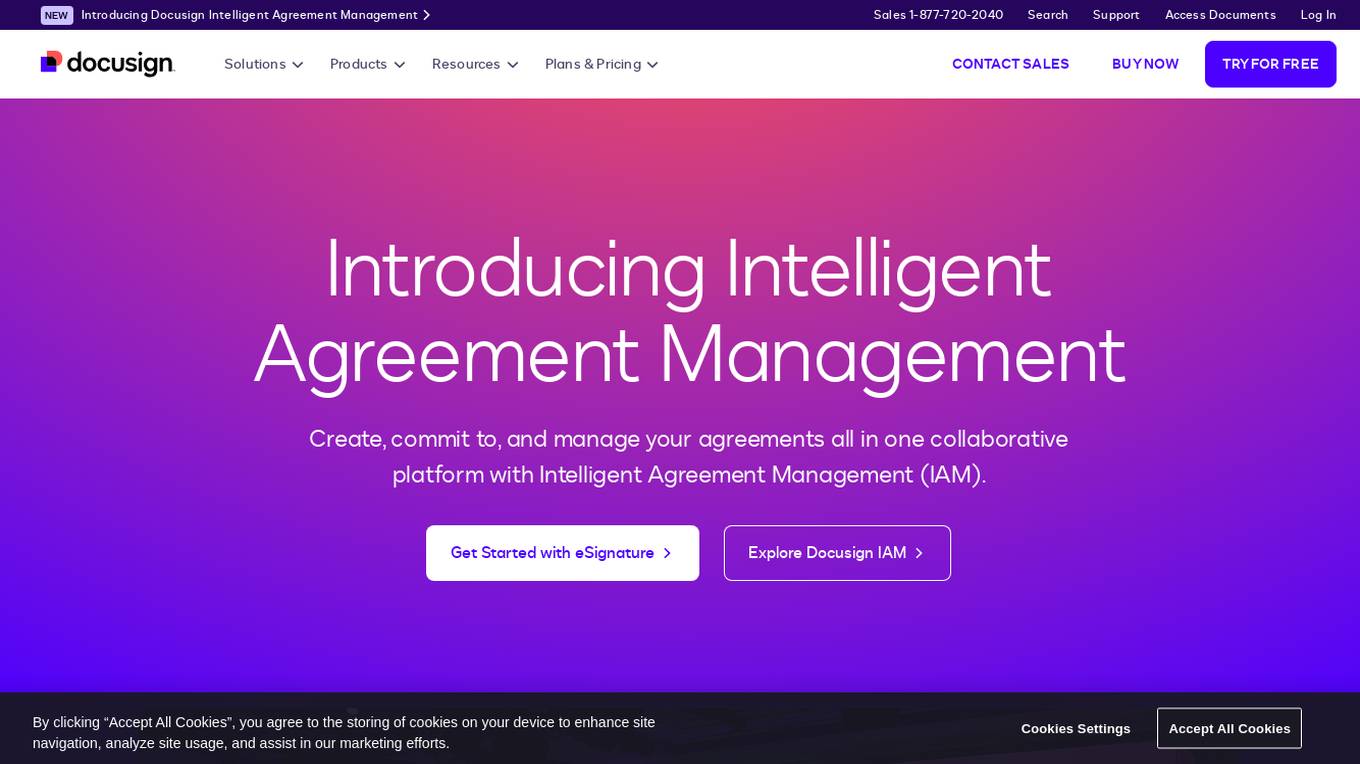
DocuSign
DocuSign is an electronic signature and contract lifecycle management company. It offers a suite of applications designed to help businesses of all sizes create, commit to, and manage agreements. DocuSign's Intelligent Agreement Management (IAM) platform leverages AI and integrates with existing business platforms to transform how businesses manage agreements. DocuSign's products and services include eSignature, contract lifecycle management, document generation, web forms, electronic notarization, multi-channel delivery, APIs, and platform services.
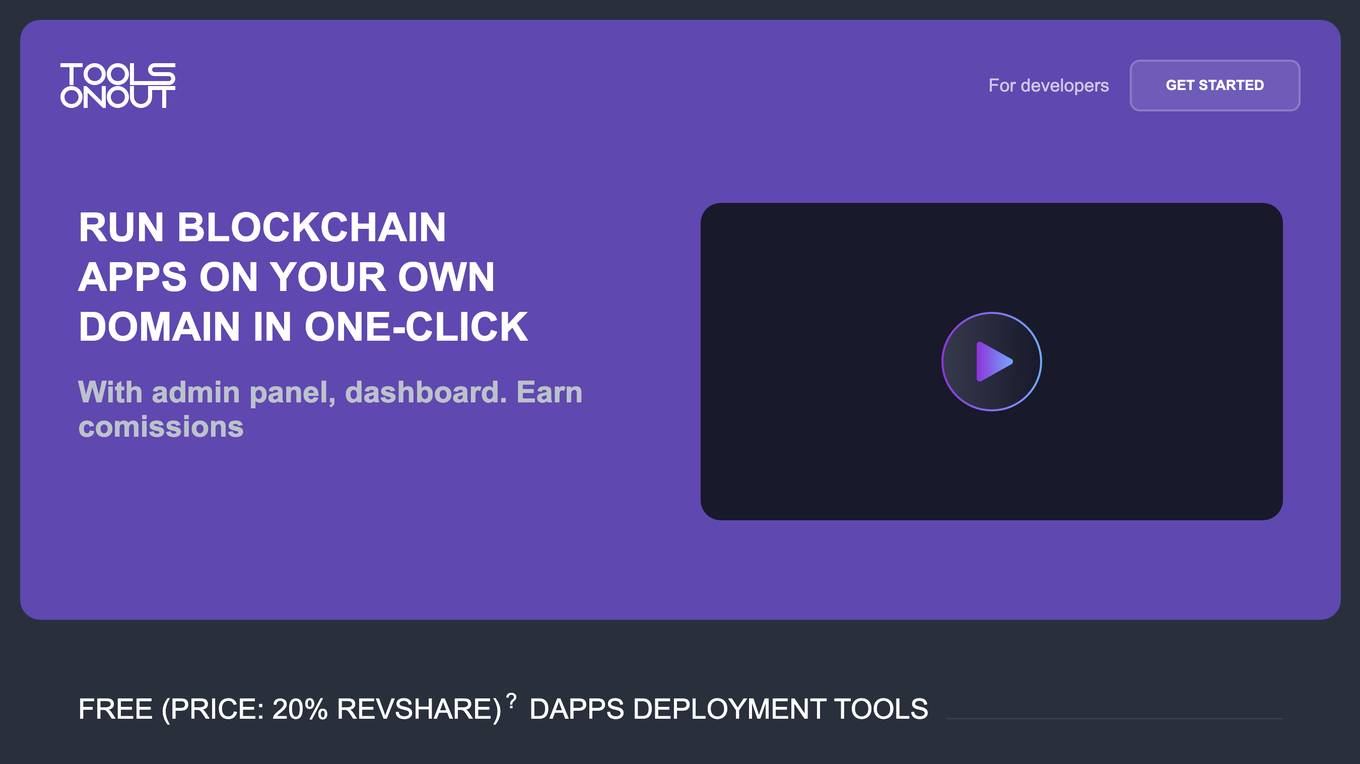
OnOut
OnOut is a platform that offers a variety of tools for developers to deploy web3 apps on their own domain with ease. It provides deployment tools for blockchain apps, DEX, farming, DAO, cross-chain setups, IDOFactory, NFT staking, and AI applications like Chate and AiGram. The platform allows users to customize their apps, earn commissions, and manage various aspects of their projects without the need for coding skills. OnOut aims to simplify the process of launching and managing decentralized applications for both developers and non-technical users.
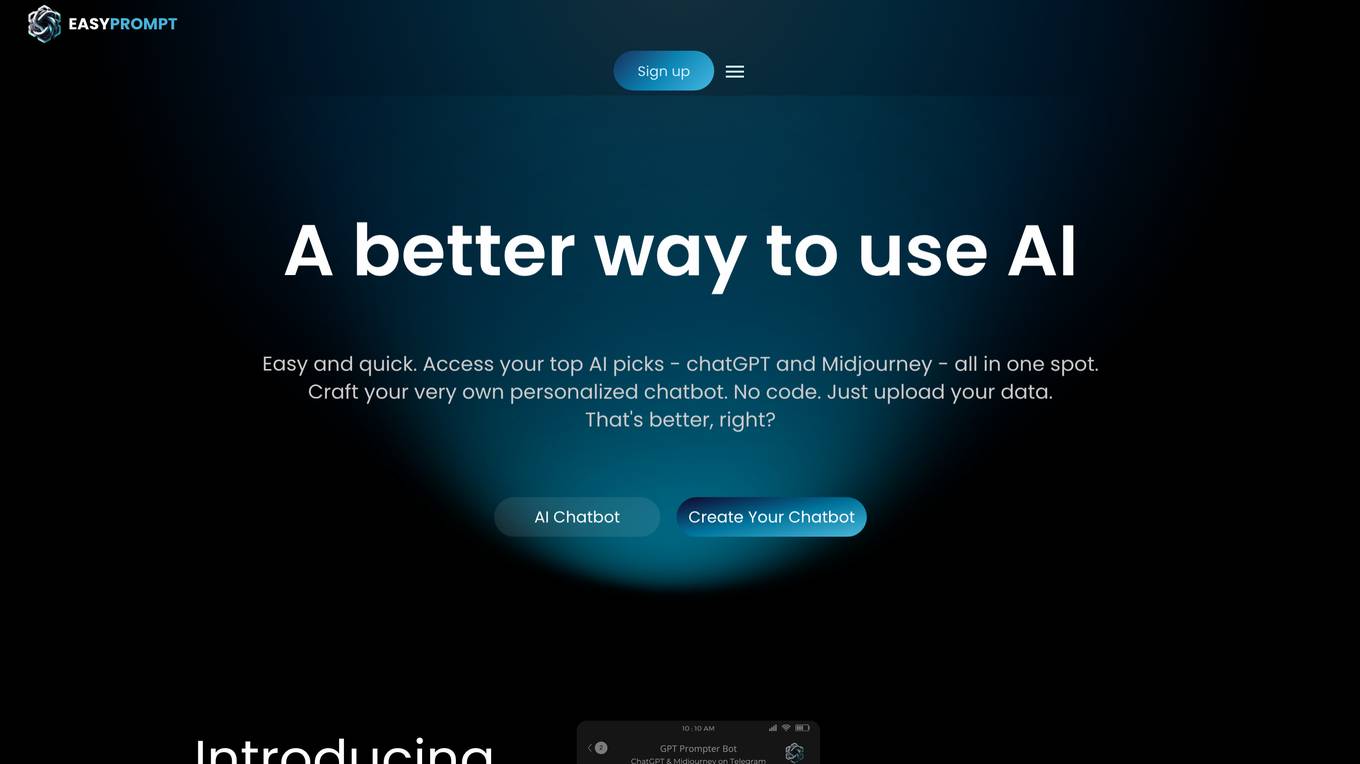
Easy Prompt
Easy Prompt is an AI-powered tool that helps users interact more effectively with the Web3 ecosystem. It provides a user-friendly interface that makes it easy to access and use Web3 applications and services. Easy Prompt also offers a variety of features that can help users learn about and understand Web3.
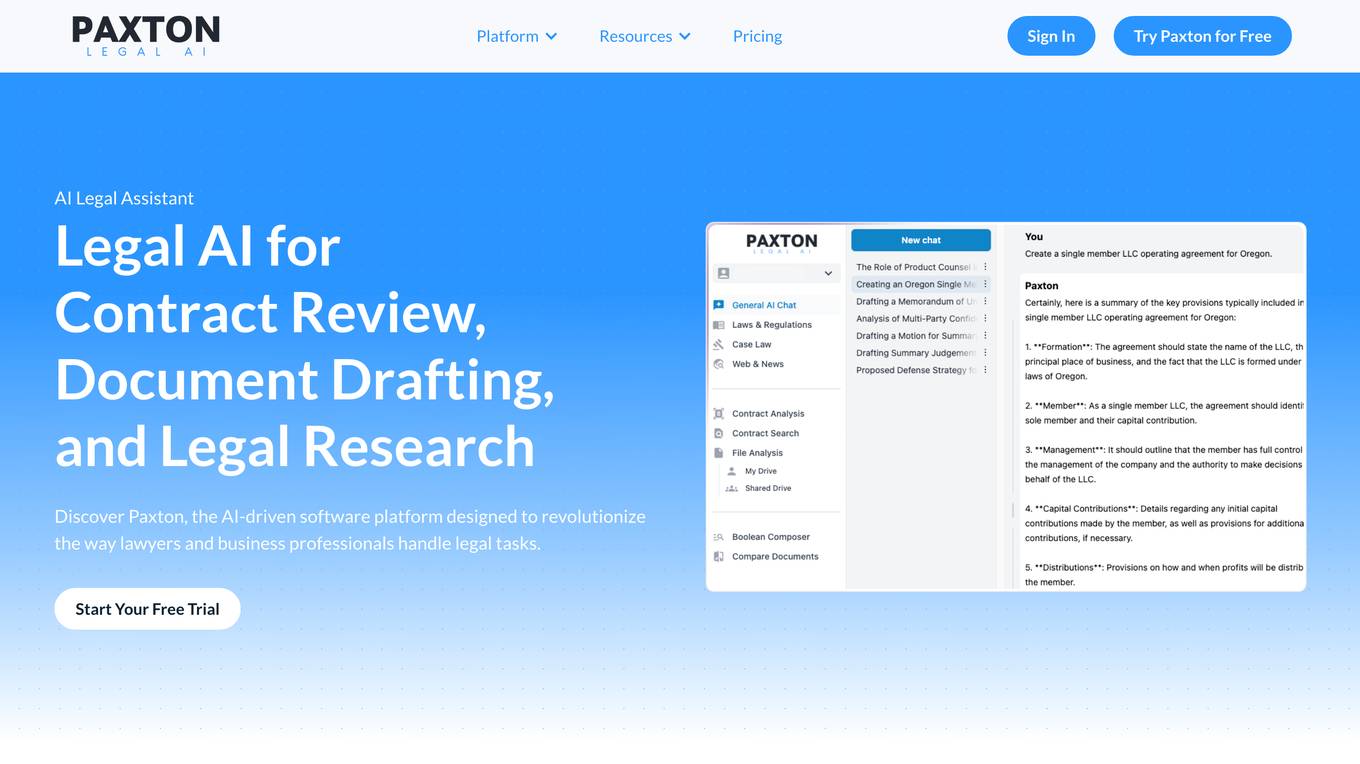
Paxton
Paxton is an advanced AI platform designed to support legal and business professionals by automating and enhancing tasks such as contract review, legal drafting, and document analysis. Utilizing state-of-the-art artificial intelligence, including proprietary Legal Language Models, Paxton streamlines complex legal processes, improves accuracy, and drives efficiency across a wide range of applications.
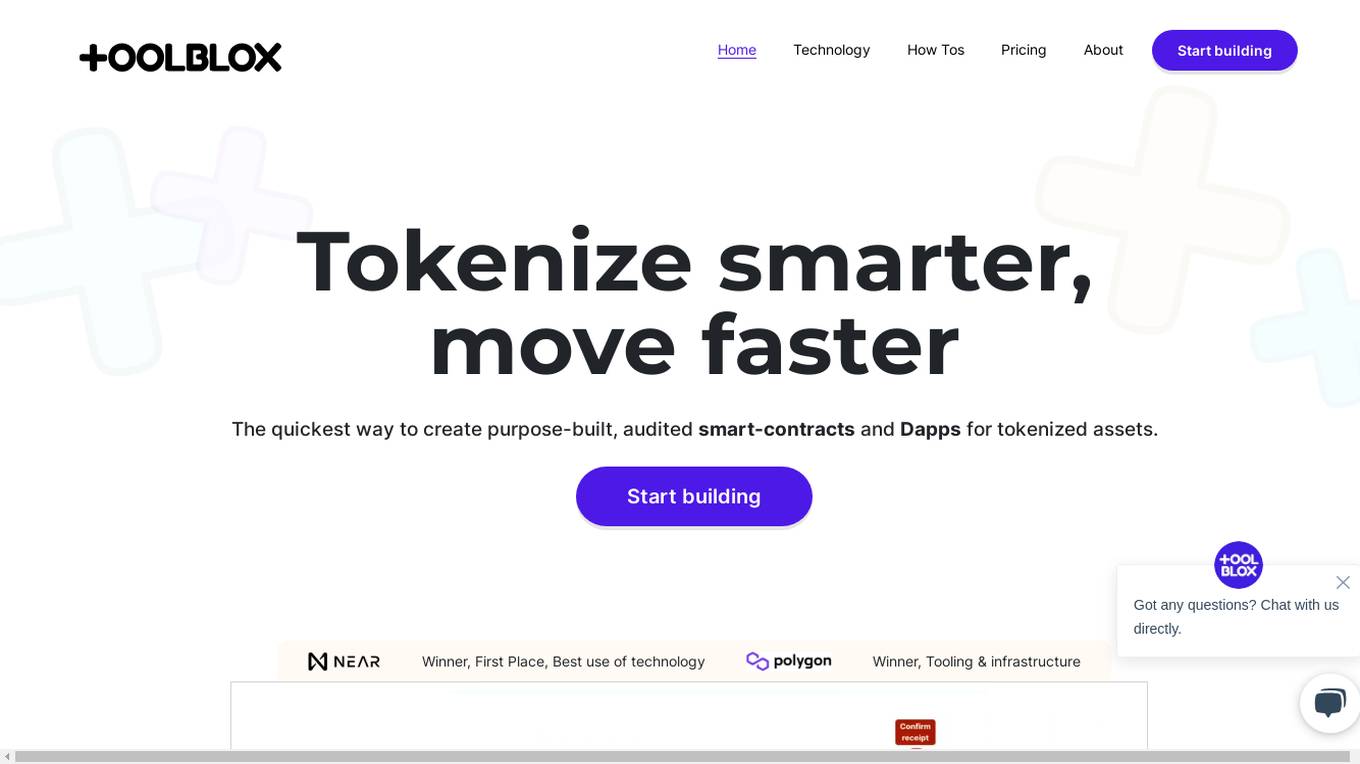
Toolblox
Toolblox is an AI-powered platform that enables users to create purpose-built, audited smart-contracts and Dapps for tokenized assets quickly and efficiently. It offers a no-code solution for turning ideas into smart-contracts, visualizing workflows, and creating tokenization solutions. With pre-audited smart-contracts, examples, and an AI assistant, Toolblox simplifies the process of building and launching decentralized applications. The platform caters to founders, agencies, and businesses looking to streamline their operations and leverage blockchain technology.

Komodo Health
Komodo Health is a healthcare technology company that provides software applications to enable users to deliver exceptional value to their customers, colleagues, and patients. The company's Healthcare Map is the industry's most precise view of the U.S. healthcare system, and it combines the world's most comprehensive view of patient-encounters with innovative algorithms and decades of clinical expertise. Komodo Health's software applications are used by life sciences companies, payers, providers, and consultancies to improve the certainty of pre-launch plans, calculate Rx-based ROI for digital marketing, find patients with complicated or rare conditions, and more.
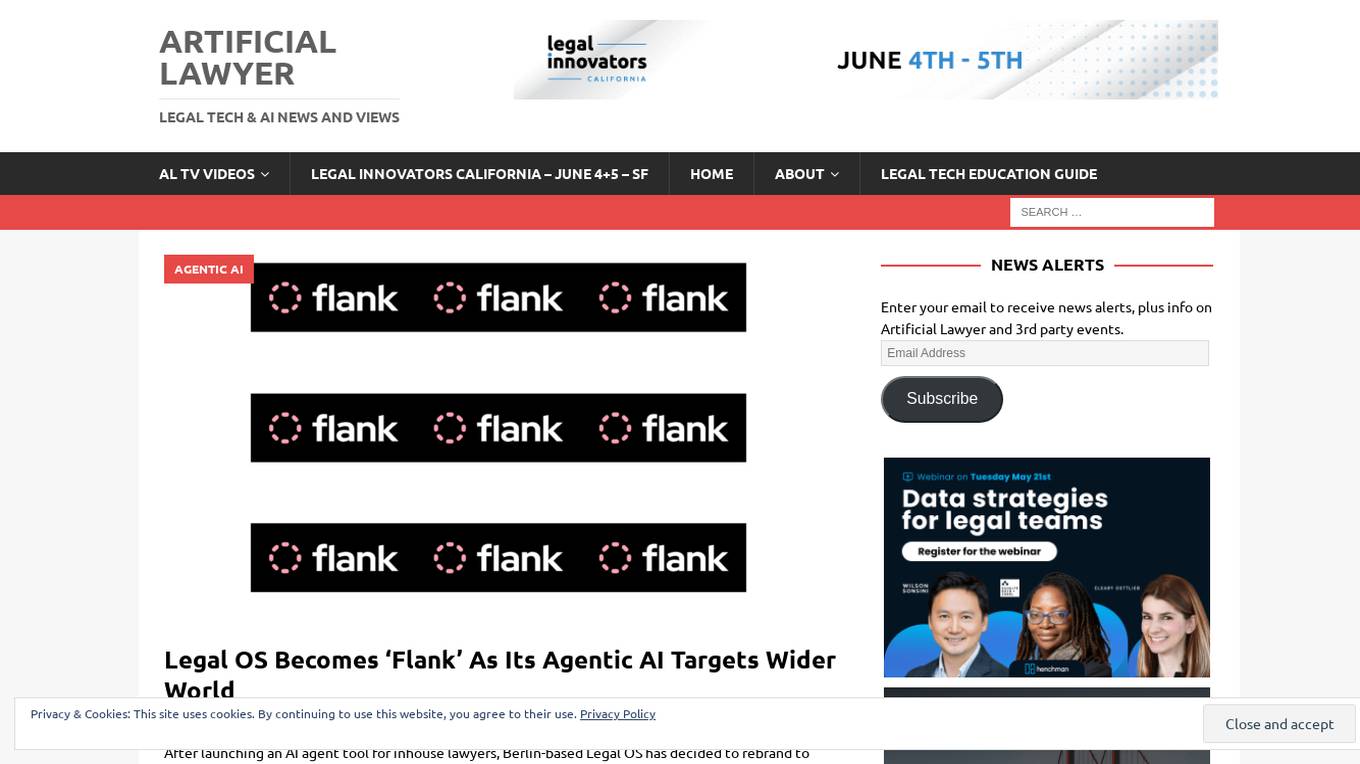
Artificial Lawyer
Artificial Lawyer is a platform dedicated to providing news and views on legal tech and artificial intelligence in the legal industry. The website covers a wide range of topics such as AI applications in legal work, legal education, eDiscovery, funding for AI assistants, and more. It aims to keep professionals updated on the latest developments and innovations in the intersection of law and technology.
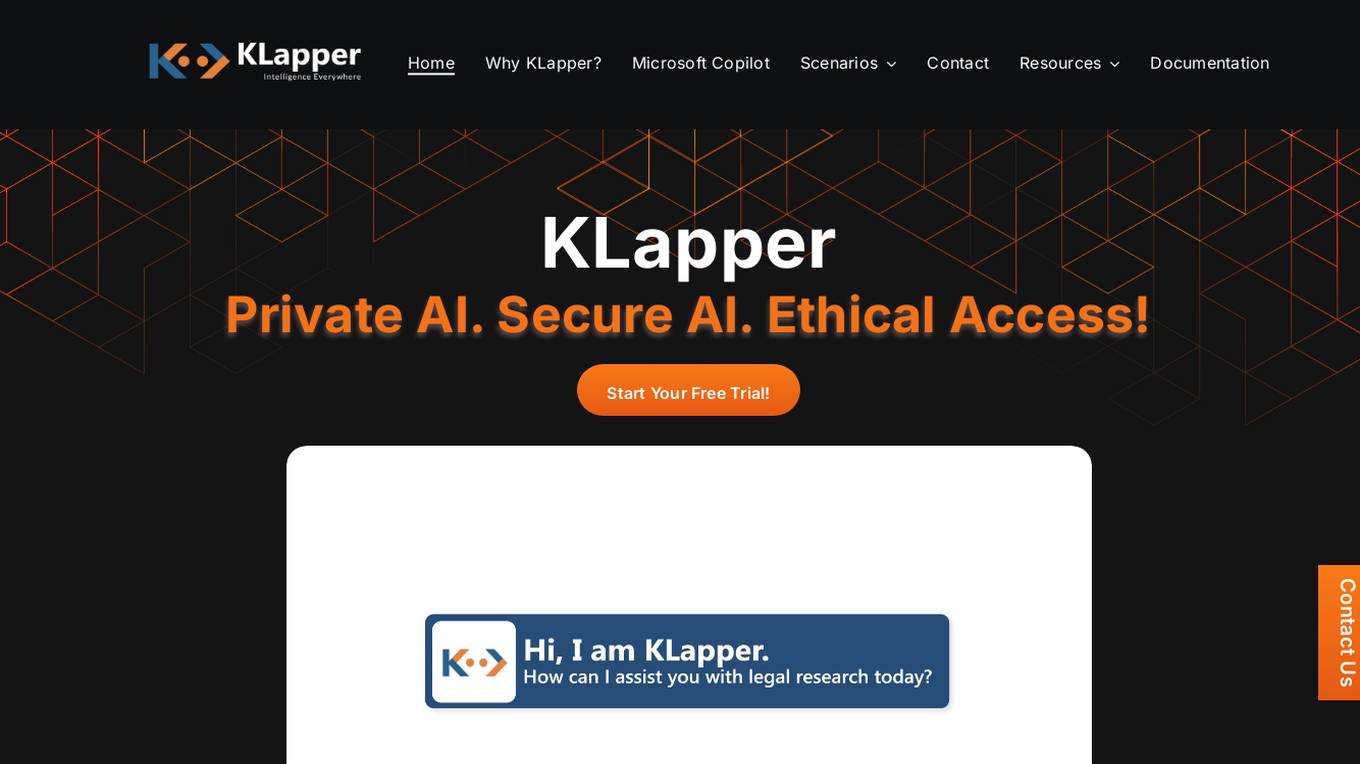
KLapper Legal Assistant
KLapper is a private and secure GenAI solution designed for law firms, integrating with Microsoft 365 Copilot to provide intelligence from various applications. It offers deep integration with Microsoft Teams and Word, ensuring seamless access within Microsoft 365. KLapper enforces robust security through mirrored DMS role-based access control and allows firms to deploy it securely within their own Microsoft Azure environment. Its Agentic AI capabilities automate administrative tasks, streamlining operations and reducing manual workload. The application assists in legal research, litigation support, document review and analysis, transactional skills, personalized legal support, and billing support.
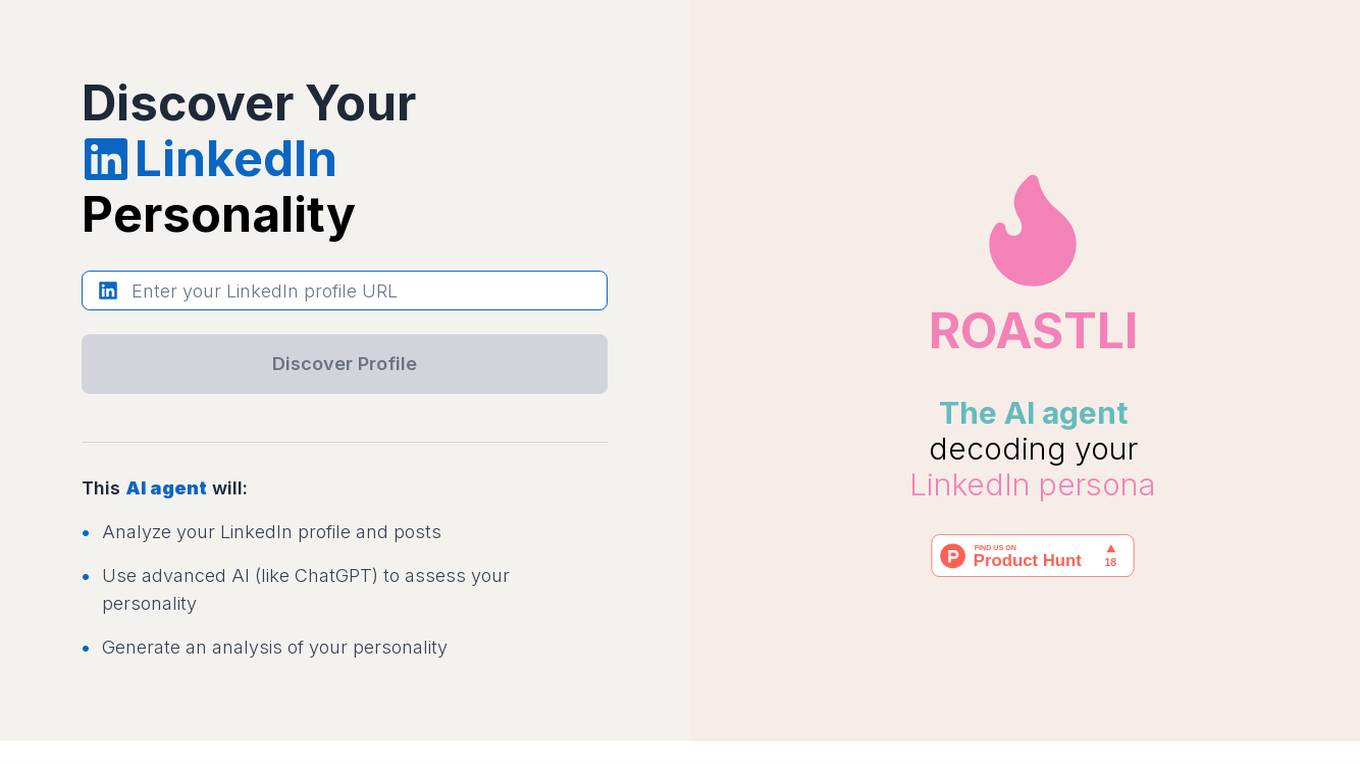
ROASTLI
ROASTLI is an AI tool designed to analyze LinkedIn profiles and posts using advanced AI technology like ChatGPT. It generates a detailed analysis of the user's personality based on their LinkedIn activity. Additionally, ROASTLI is built on Wordware, an IDE for creating custom AI agents using natural language, making it suitable for various applications such as legal contract generation, marketing automation, and invoice analysis. It is ideal for cross-functional teams working on LLM applications, including non-technical members who require prompt outputs and quick iterations. ROASTLI empowers domain experts to shape LLM outputs without coding, particularly beneficial for scenarios like lawyers developing legal SaaS products. Developers can leverage ROASTLI to build sophisticated AI agents swiftly, offering features like loops, conditional logic, structured generation, and custom API integrations.
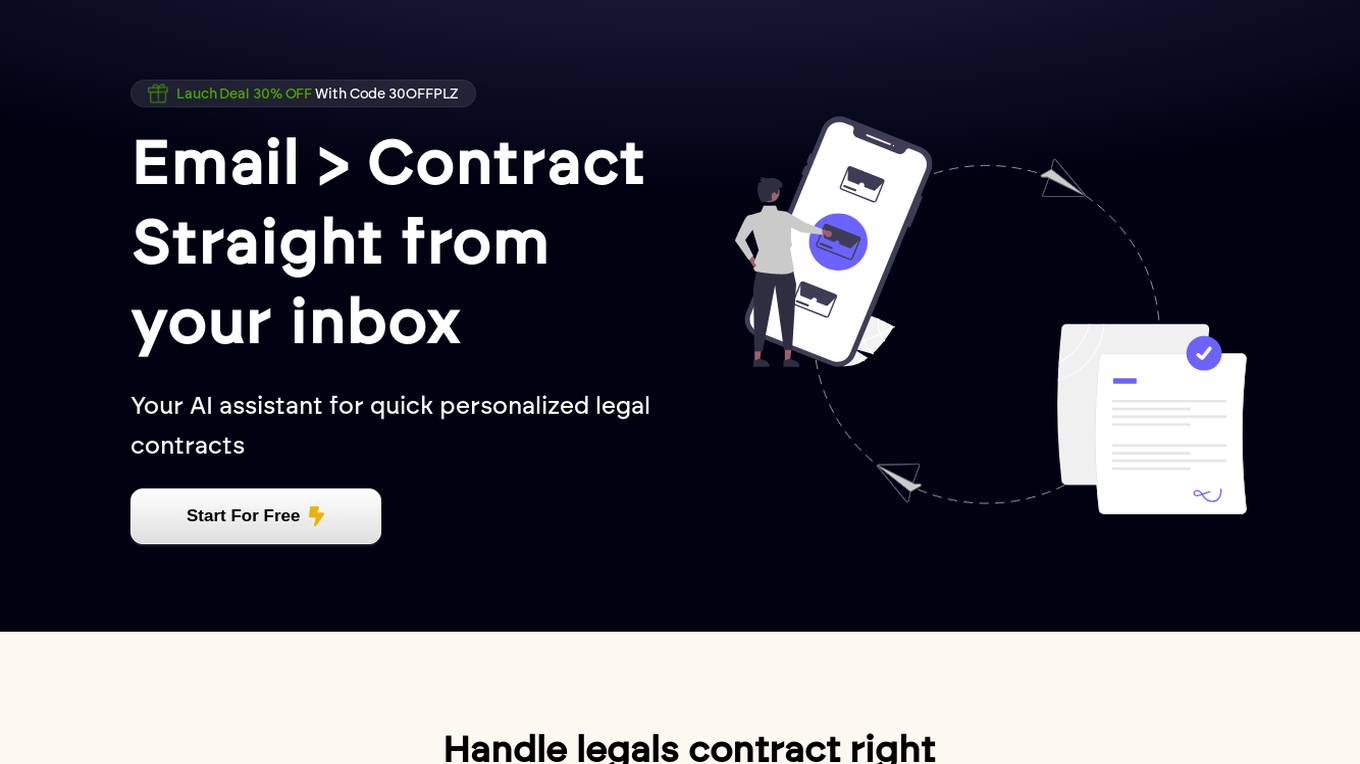
Email To Contract
Email To Contract is an AI tool that transforms emails into contracts seamlessly. It simplifies the process of creating tailored contracts by analyzing email conversations and generating contracts based on predefined templates. The tool is designed to work with various types of contracts such as NDAs, influencer agreements, and freelancer contracts. Users can forward email threads to the designated email address and receive a customized contract in return. Email To Contract offers affordable pricing plans, unlimited credits, and modulable access to different contract types. The application is user-friendly, fast, and eliminates the hassle of manual contract creation.
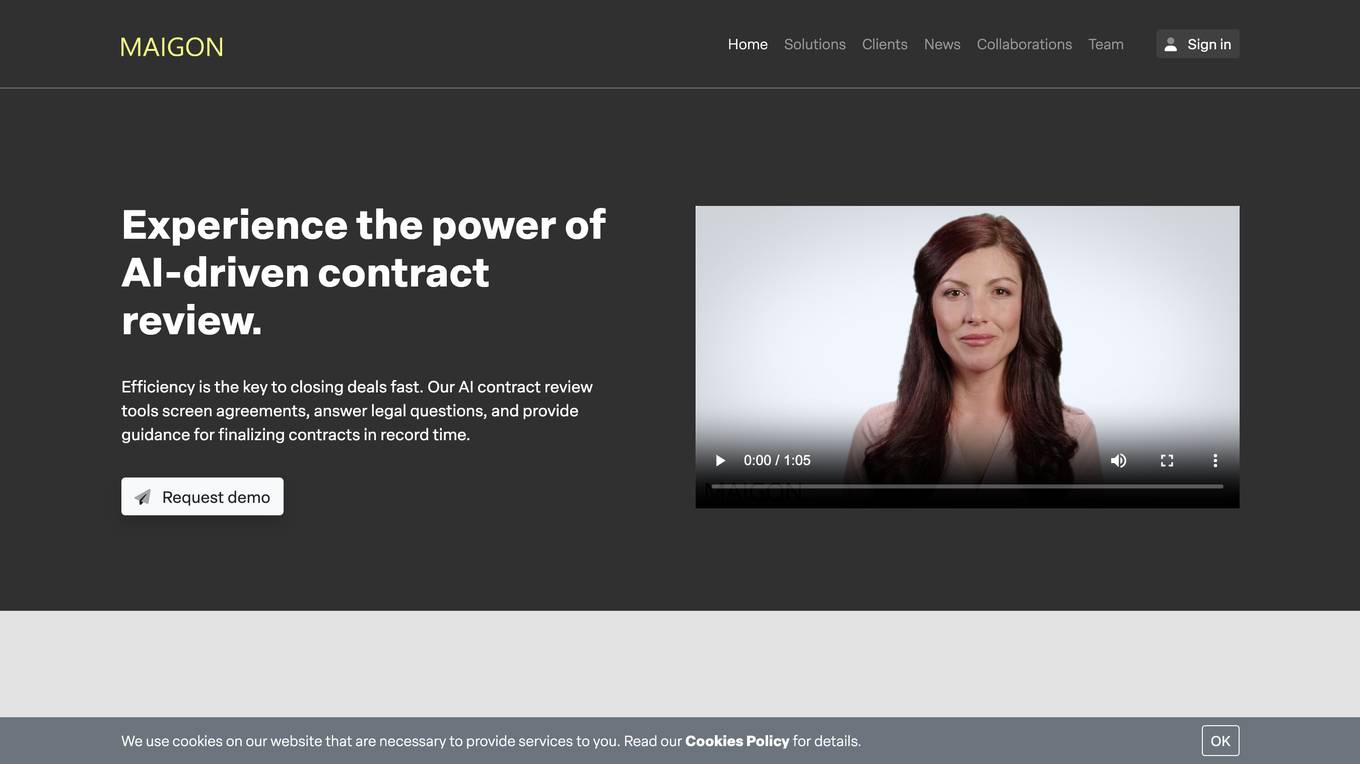
Maigon
Maigon is a state-of-the-art AI application designed for contract review. It offers efficiency in closing deals fast by providing AI-driven contract review tools that screen agreements, answer legal questions, and offer guidance for finalizing contracts in record time. Maigon integrates the latest deep learning technology and supports various contract types based on customer demand. The platform also announced the integration of OpenAI's GPT-4, enhancing the compliance review experience for clients. Maigon is trusted by industry leaders to automate the legal document review process, allowing companies to focus on strategic tasks.
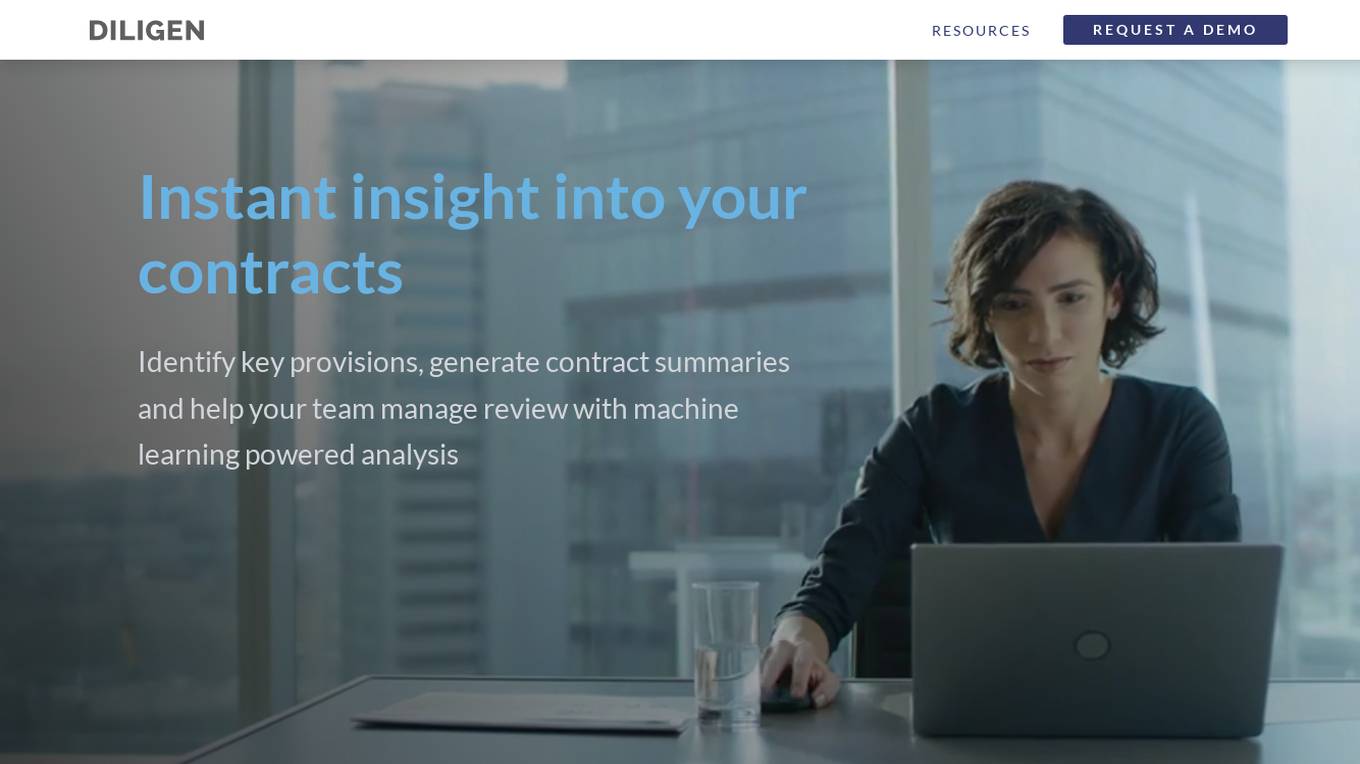
Diligen
Diligen is a machine learning powered contract analysis tool that provides instant insight into contracts by identifying key provisions, generating summaries, and facilitating team collaboration. It is designed to streamline contract review processes for law firms, legal service providers, and corporations, enabling faster and higher quality review while managing projects at scale. Diligen is used globally by various organizations to make contract review more efficient and cost-effective.
2 - Open Source AI Tools
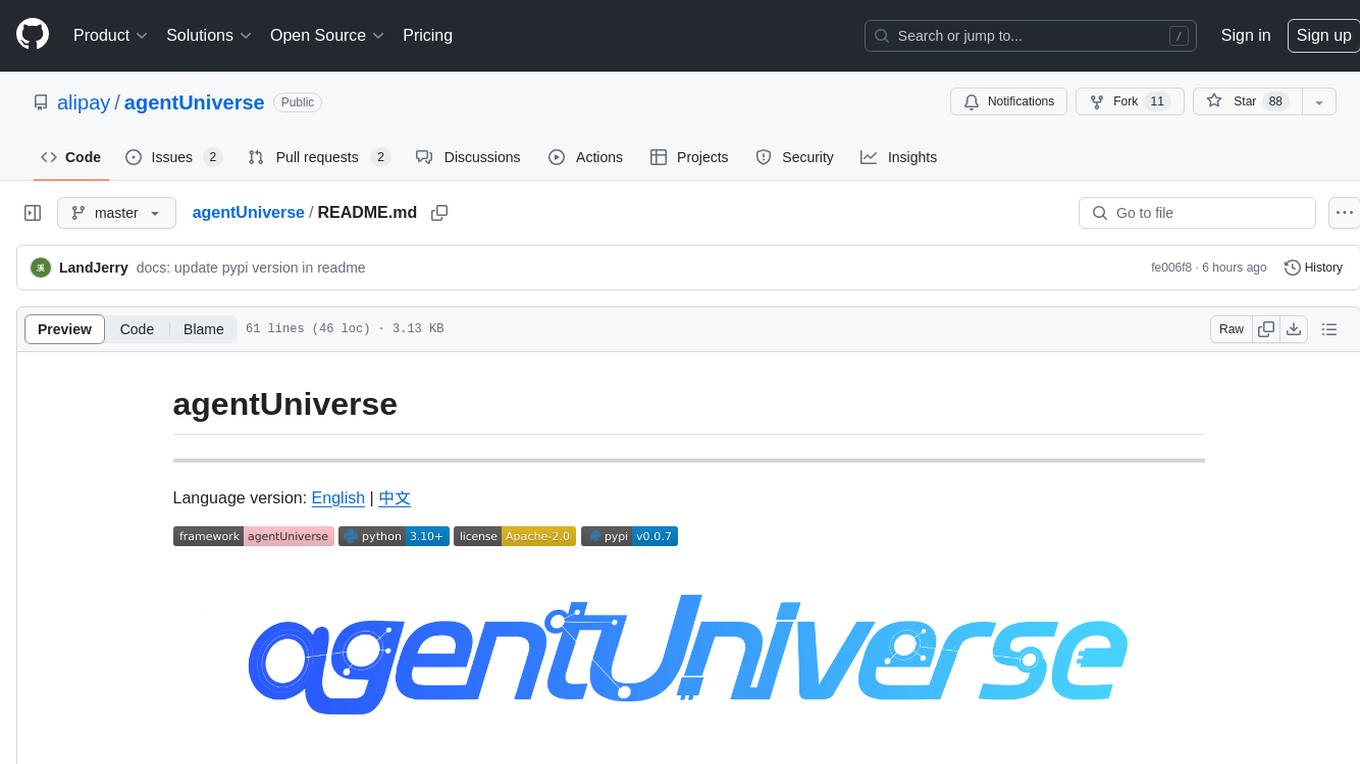
agentUniverse
agentUniverse is a framework for developing applications powered by multi-agent based on large language model. It provides essential components for building single agent and multi-agent collaboration mechanism for customizing collaboration patterns. Developers can easily construct multi-agent applications and share pattern practices from different fields. The framework includes pre-installed collaboration patterns like PEER and DOE for complex task breakdown and data-intensive tasks.

CodeFuse-muAgent
CodeFuse-muAgent is a Multi-Agent framework designed to streamline Standard Operating Procedure (SOP) orchestration for agents. It integrates toolkits, code libraries, knowledge bases, and sandbox environments for rapid construction of complex Multi-Agent interactive applications. The framework enables efficient execution and handling of multi-layered and multi-dimensional tasks.
20 - OpenAI Gpts
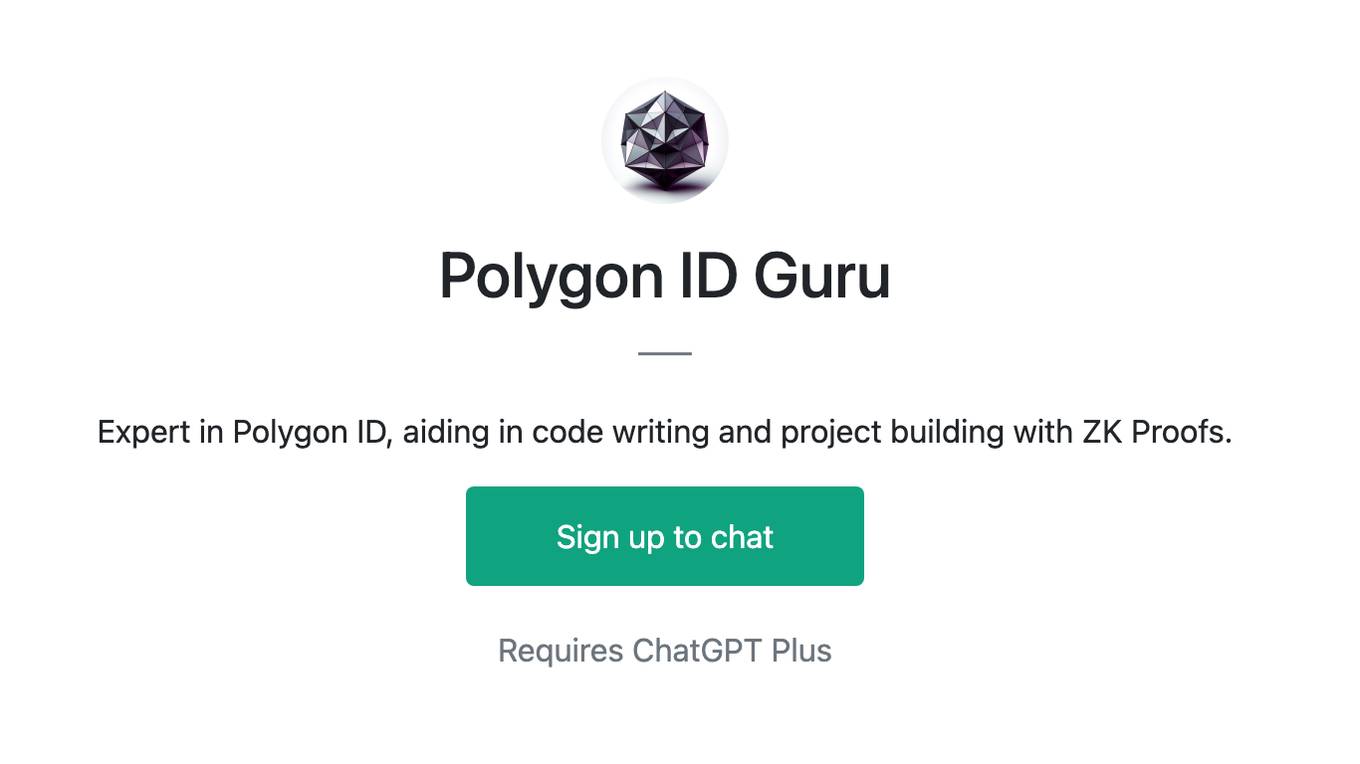
Polygon ID Guru
Expert in Polygon ID, aiding in code writing and project building with ZK Proofs.
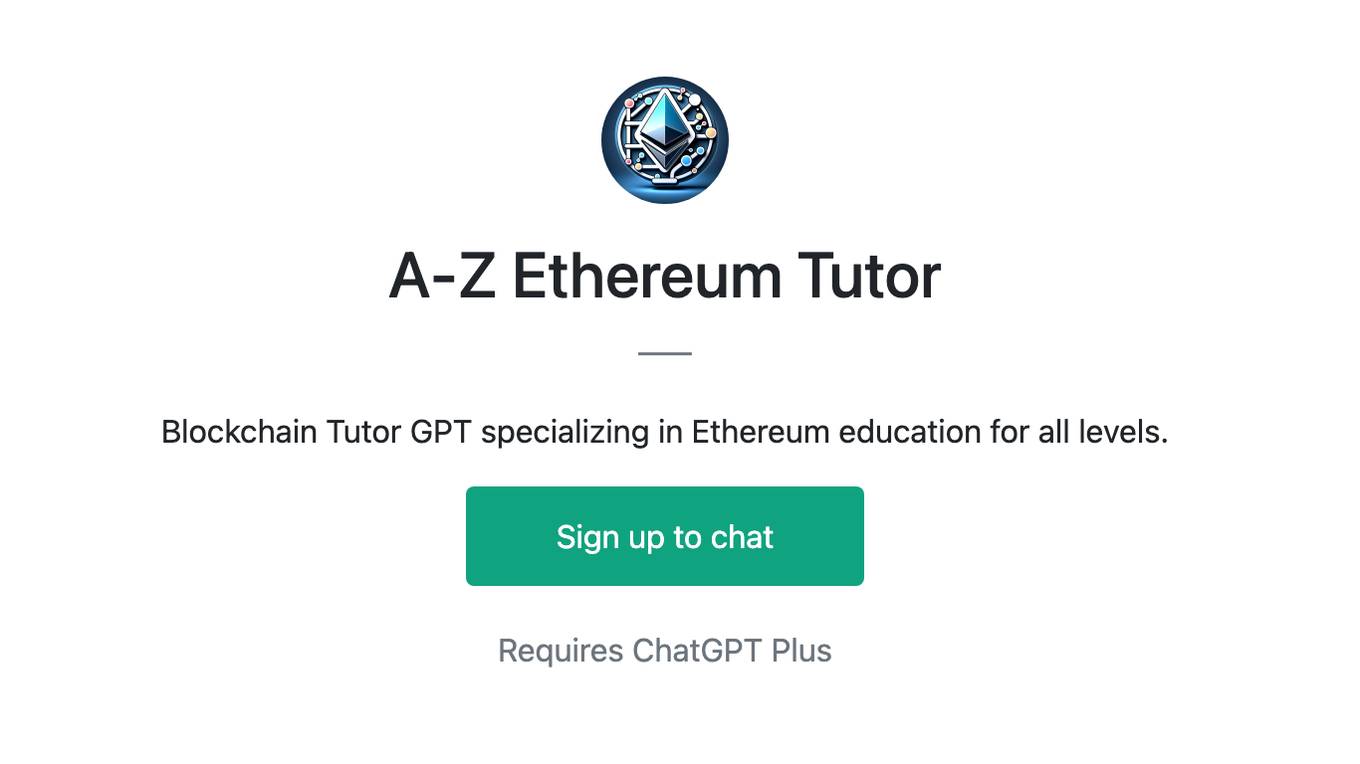
A-Z Ethereum Tutor
Blockchain Tutor GPT specializing in Ethereum education for all levels.
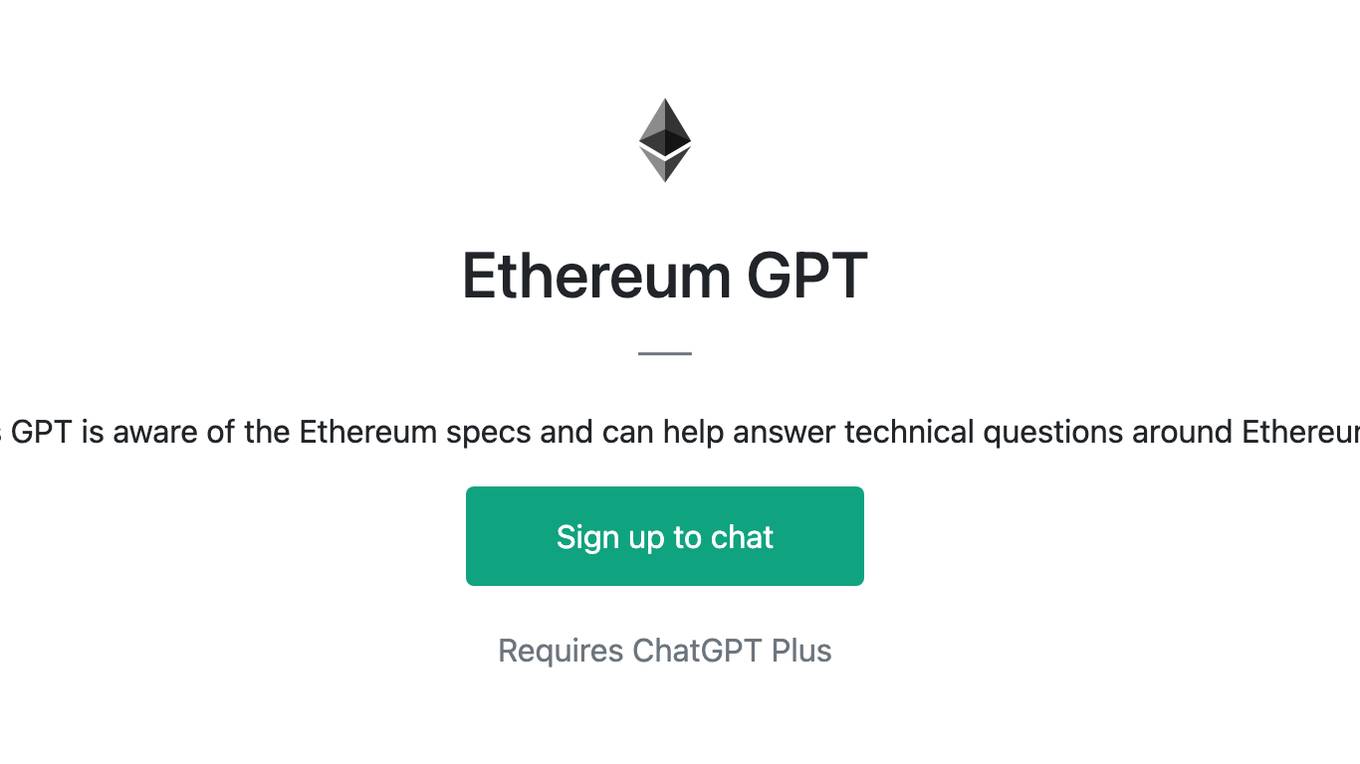
Ethereum GPT
This GPT is aware of the Ethereum specs and can help answer technical questions around Ethereum.
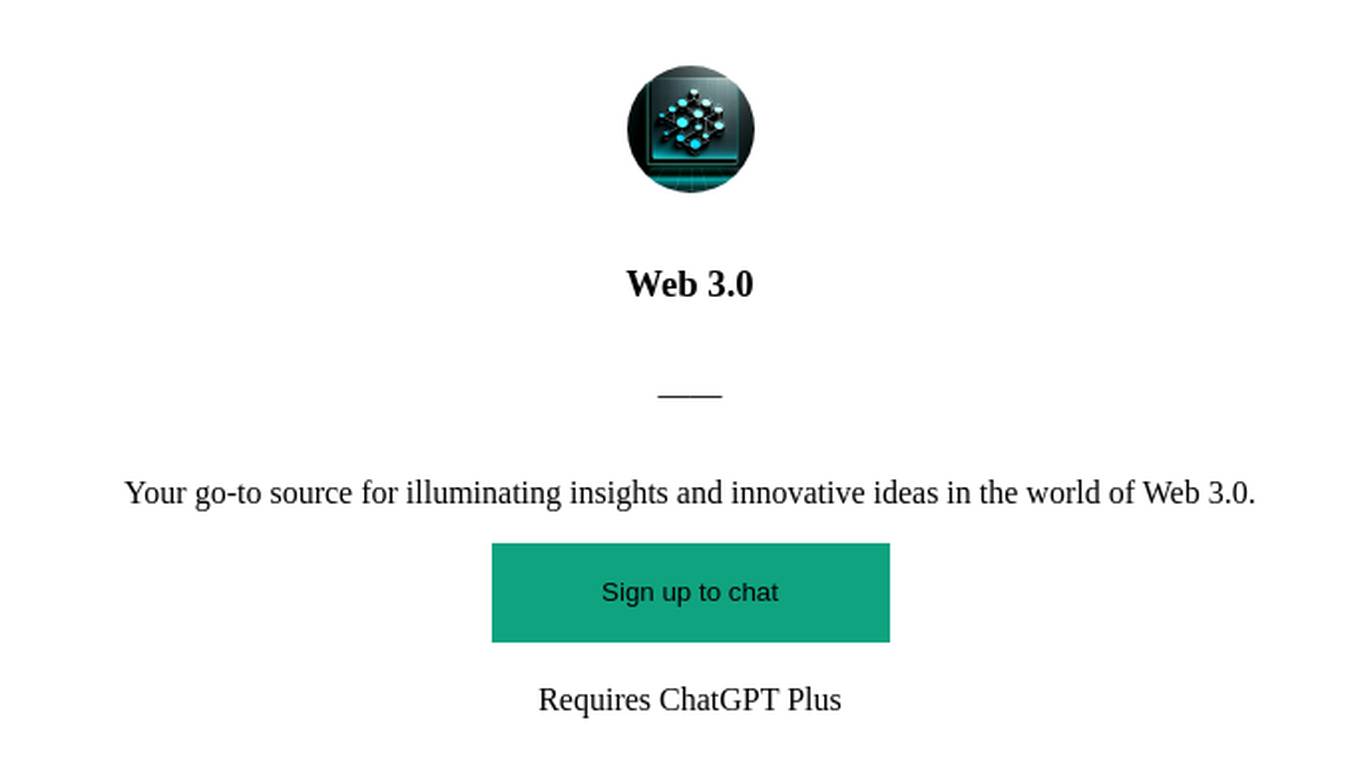
Web 3.0
Your go-to source for illuminating insights and innovative ideas in the world of Web 3.0.
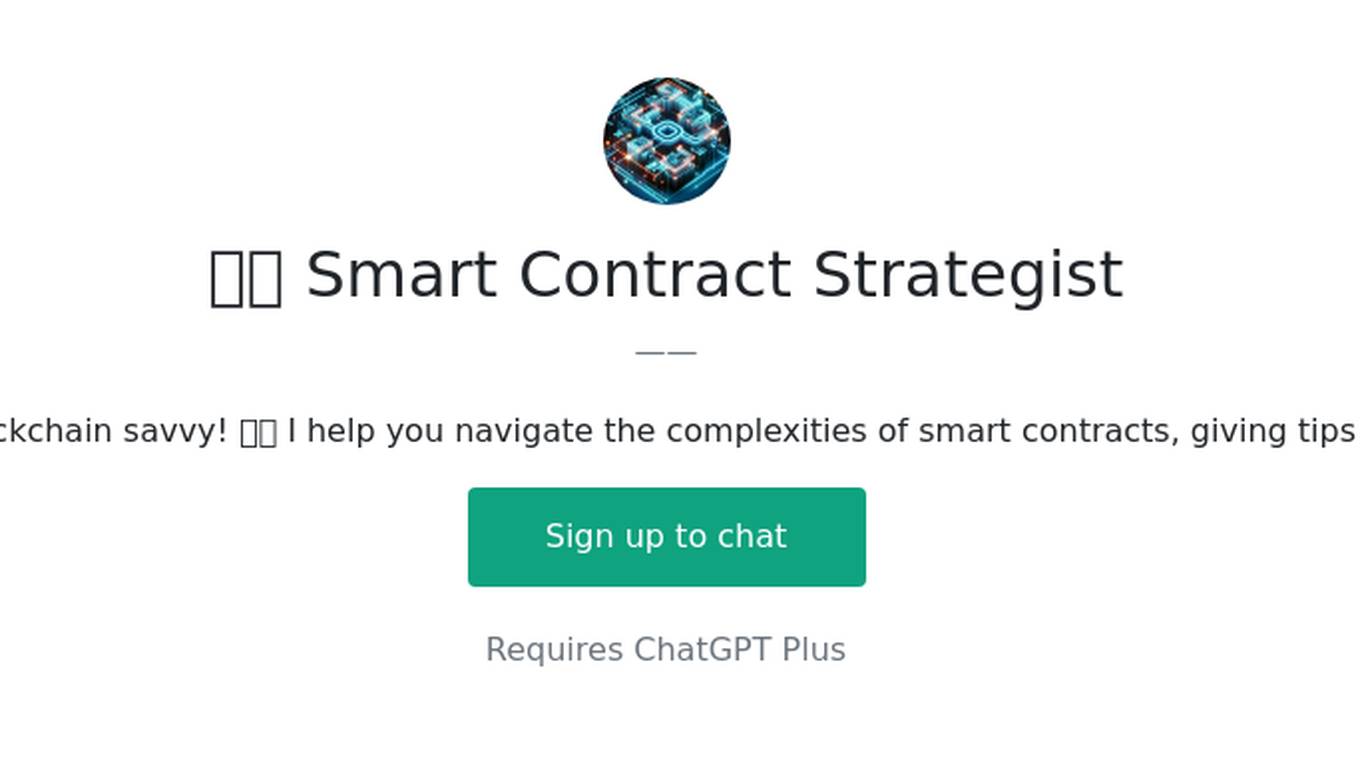
🔗🔢 Smart Contract Strategist
Your go-to AI for blockchain savvy! 🤓💡 I help you navigate the complexities of smart contracts, giving tips and code insights.
